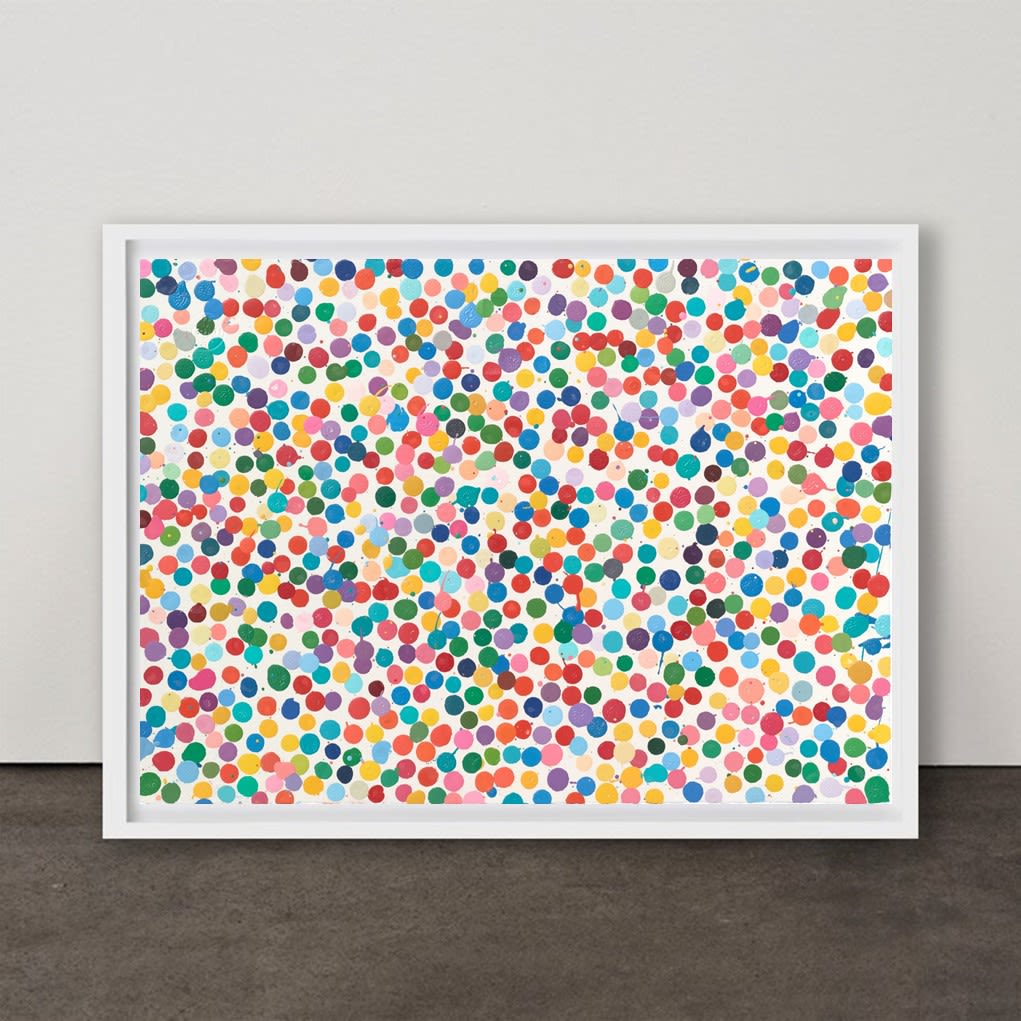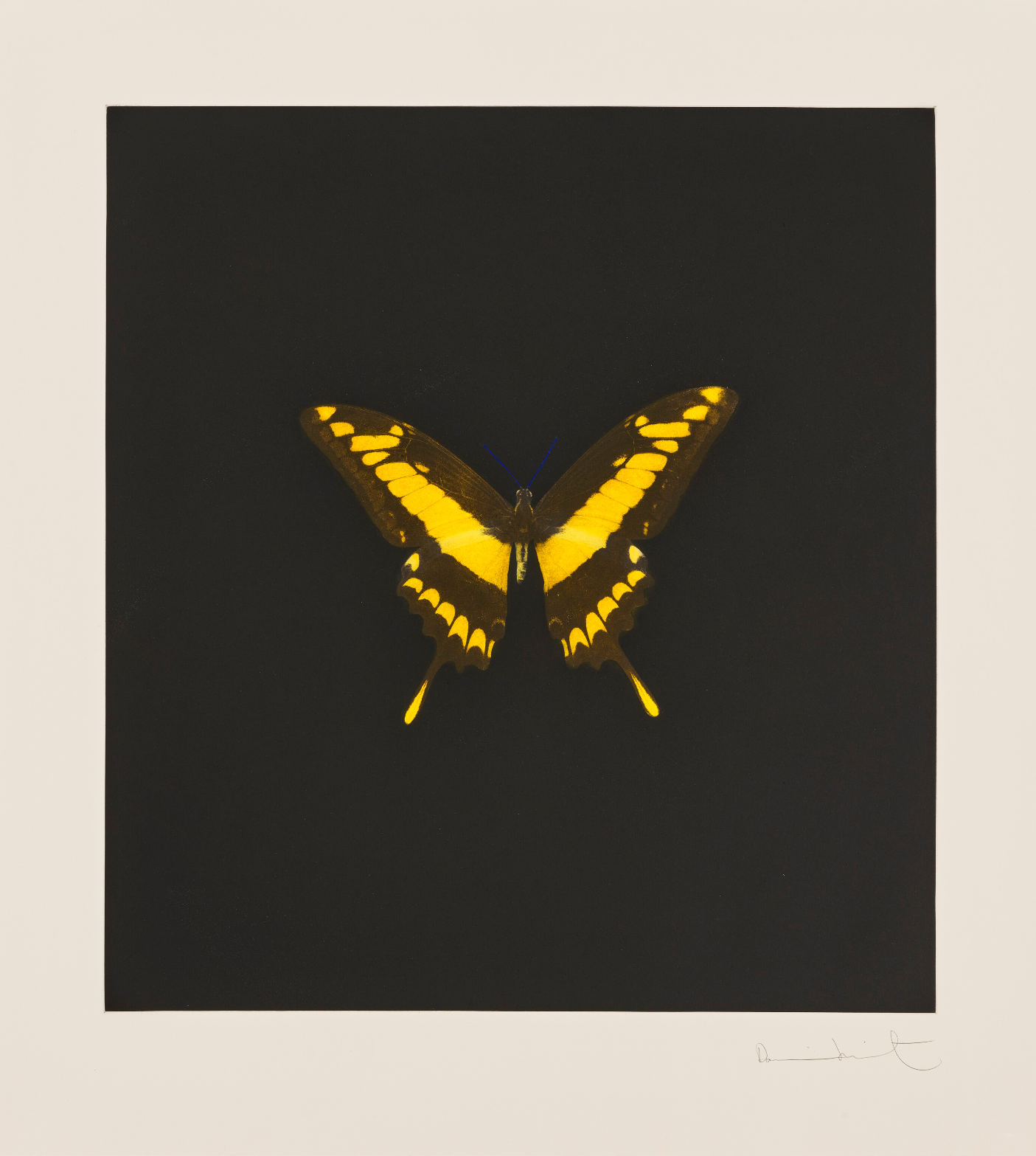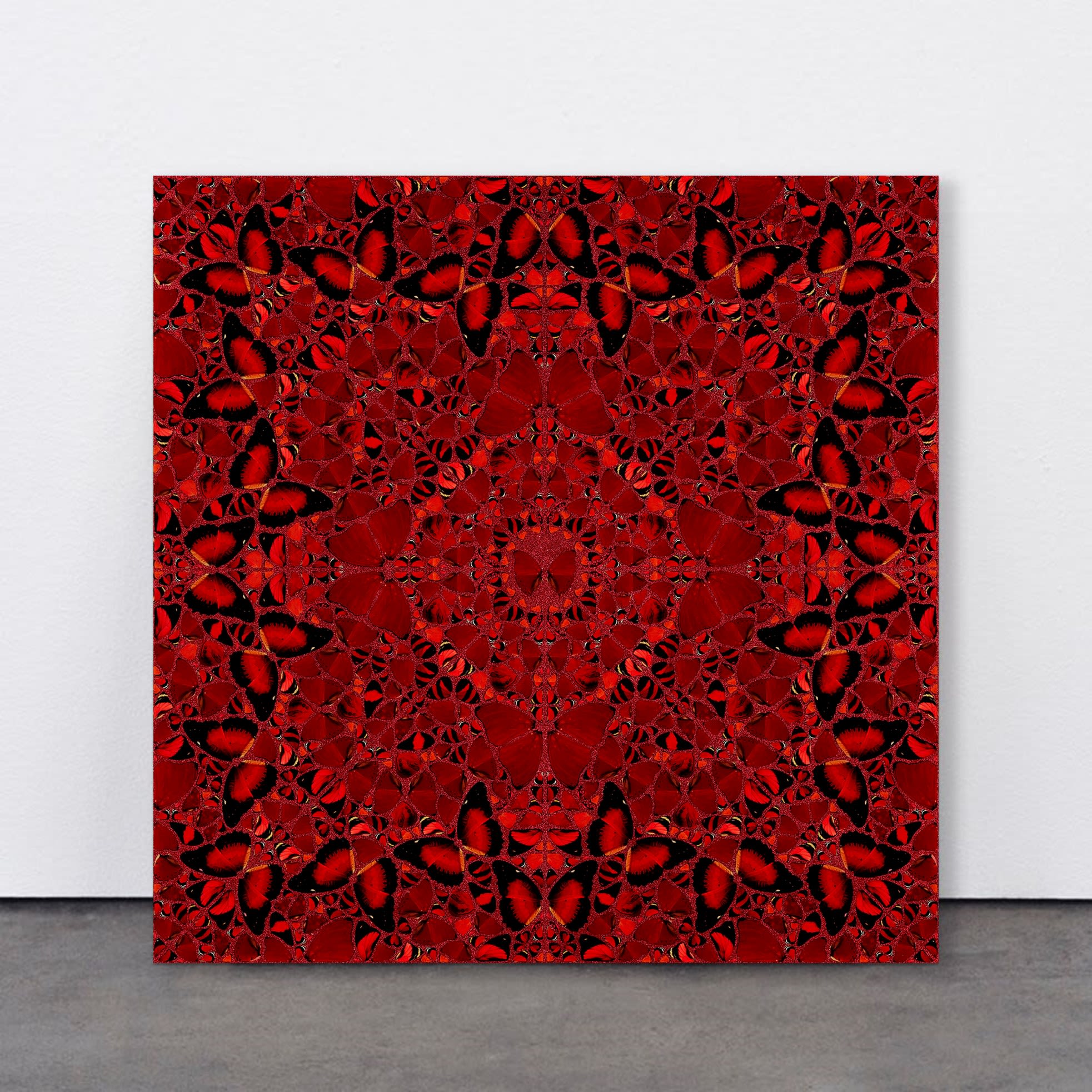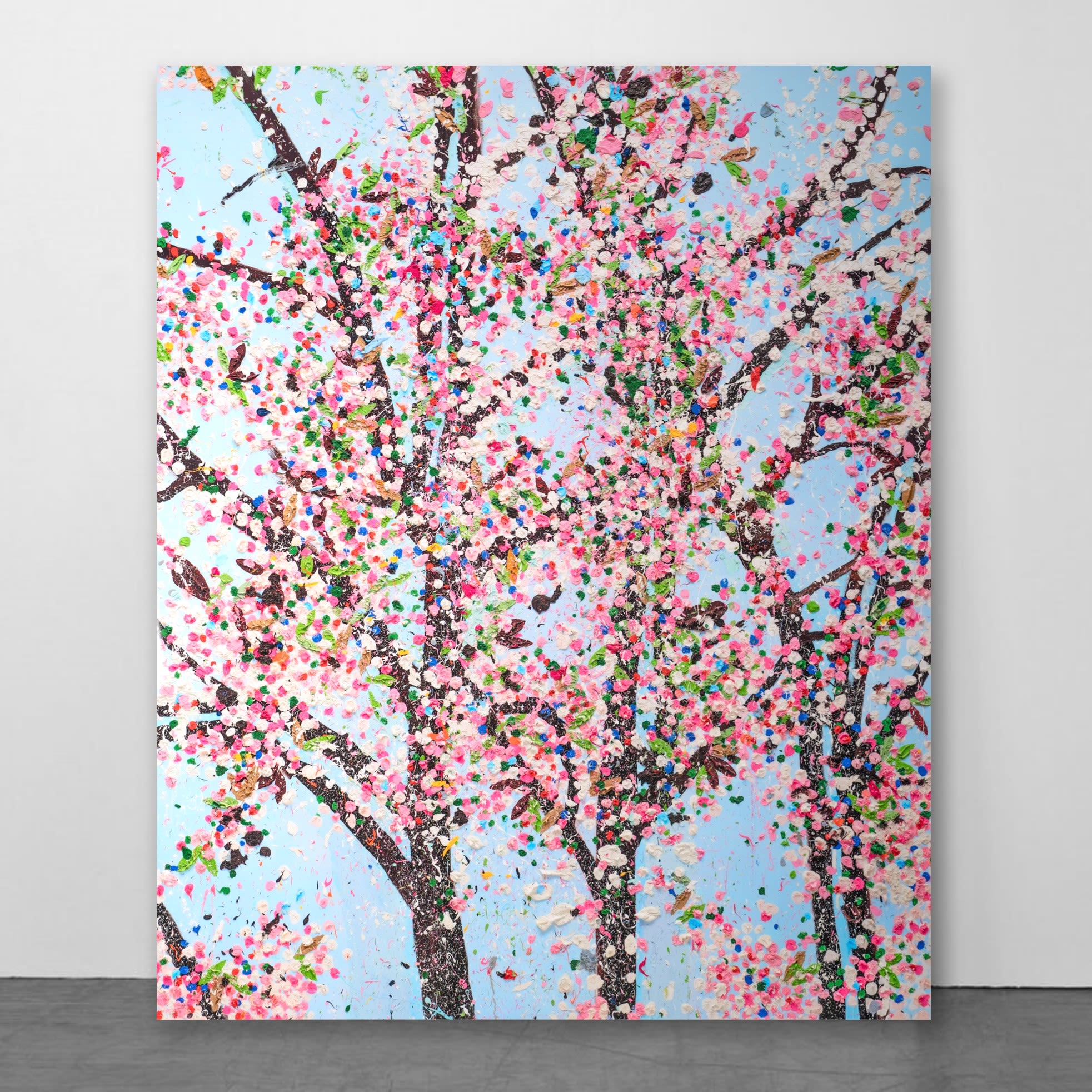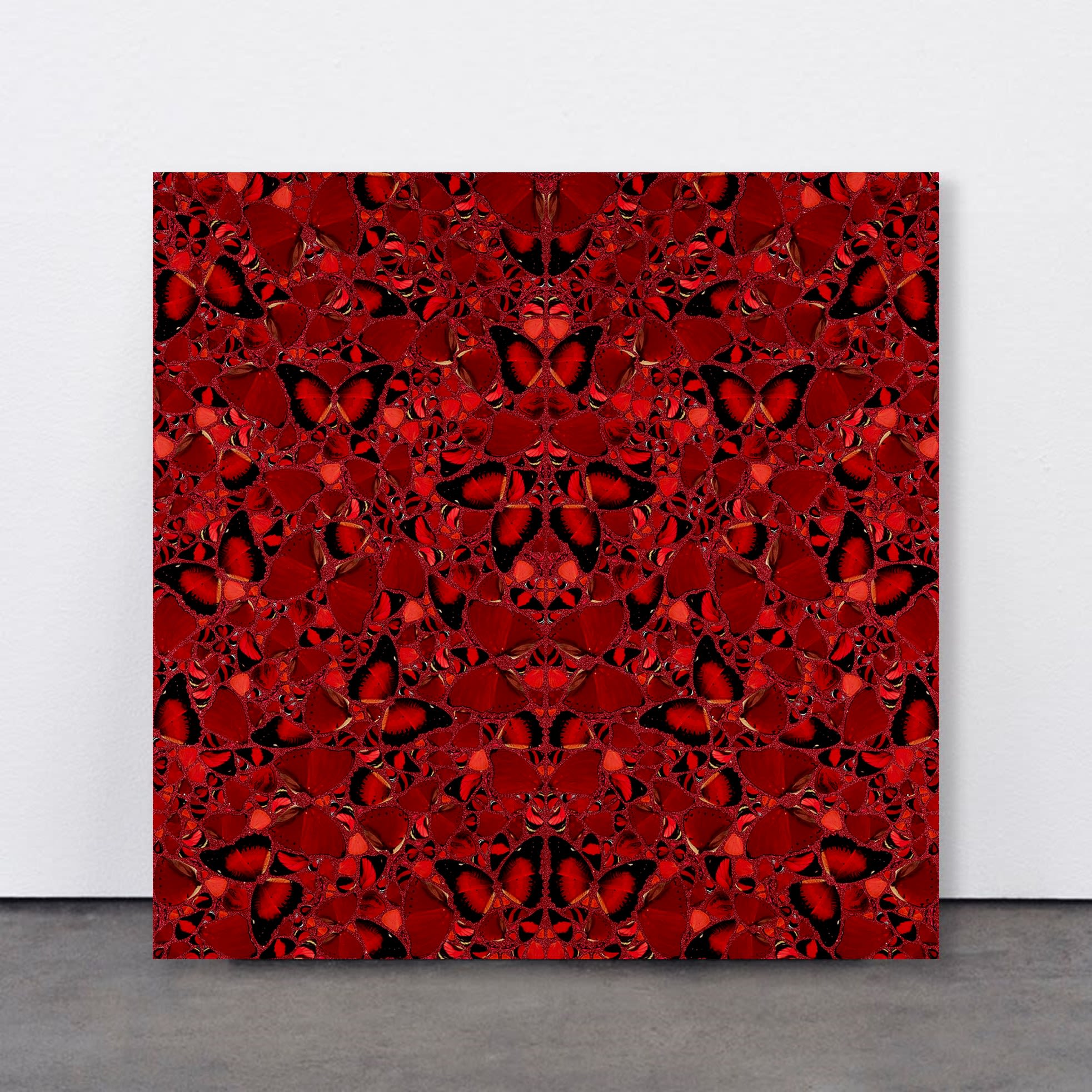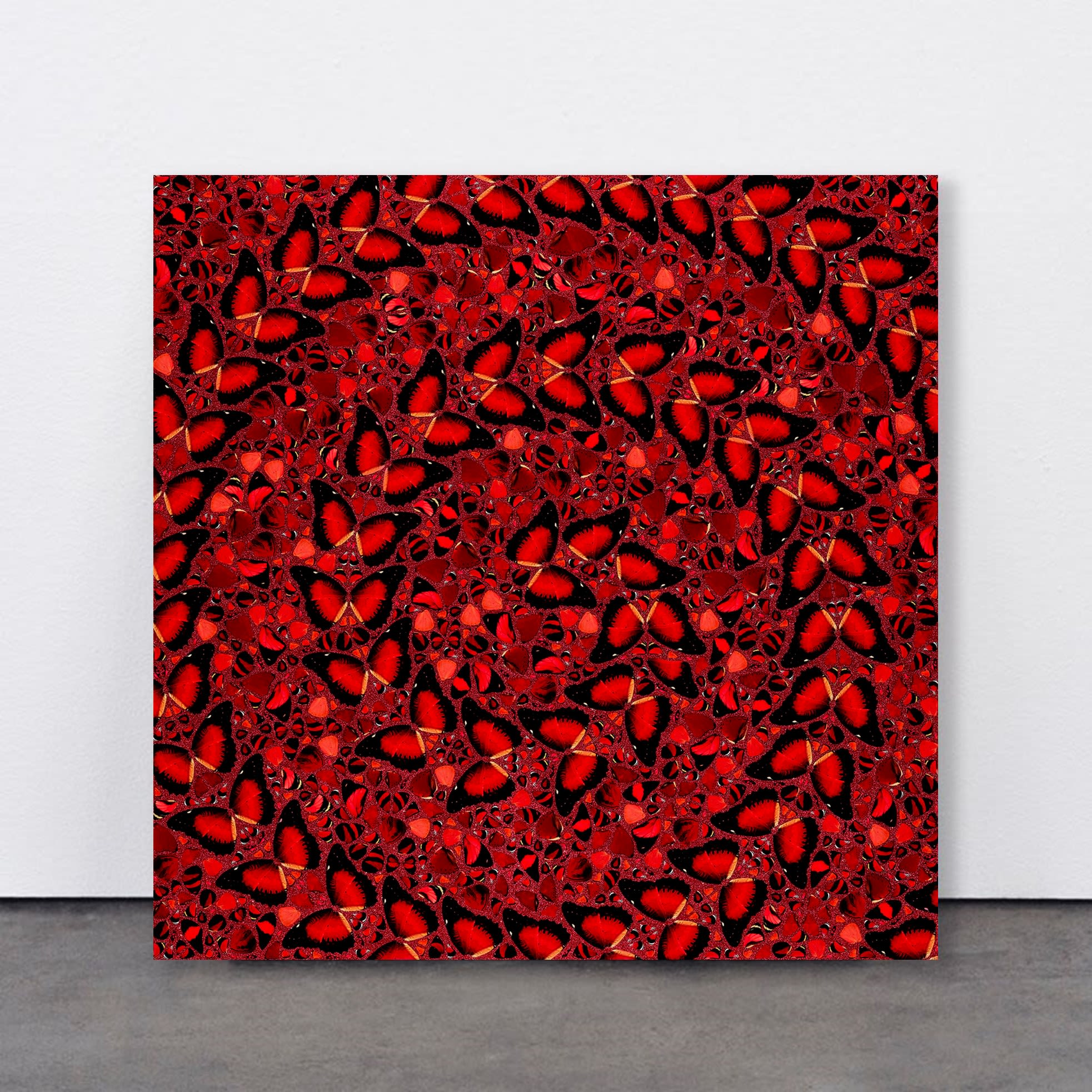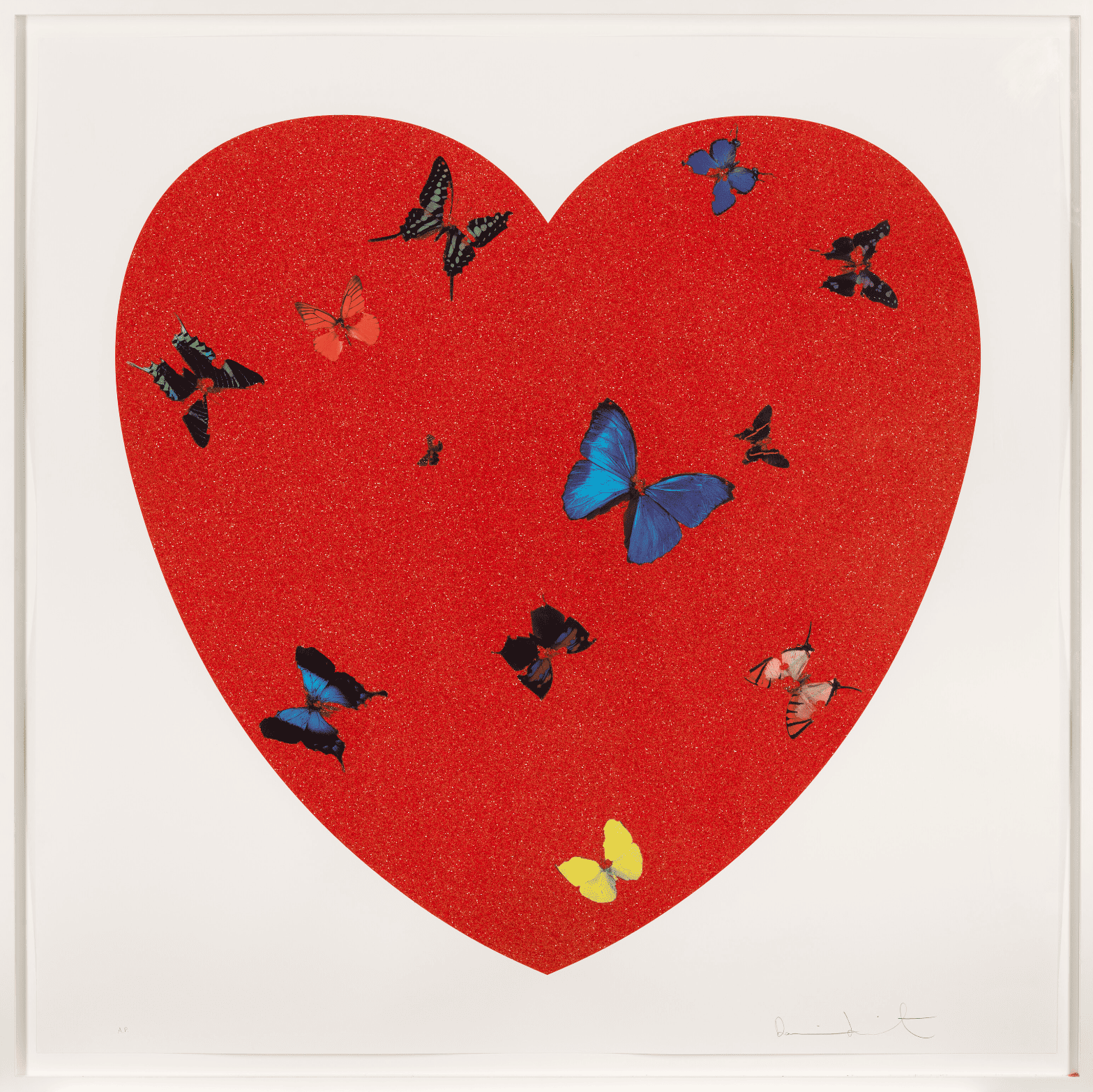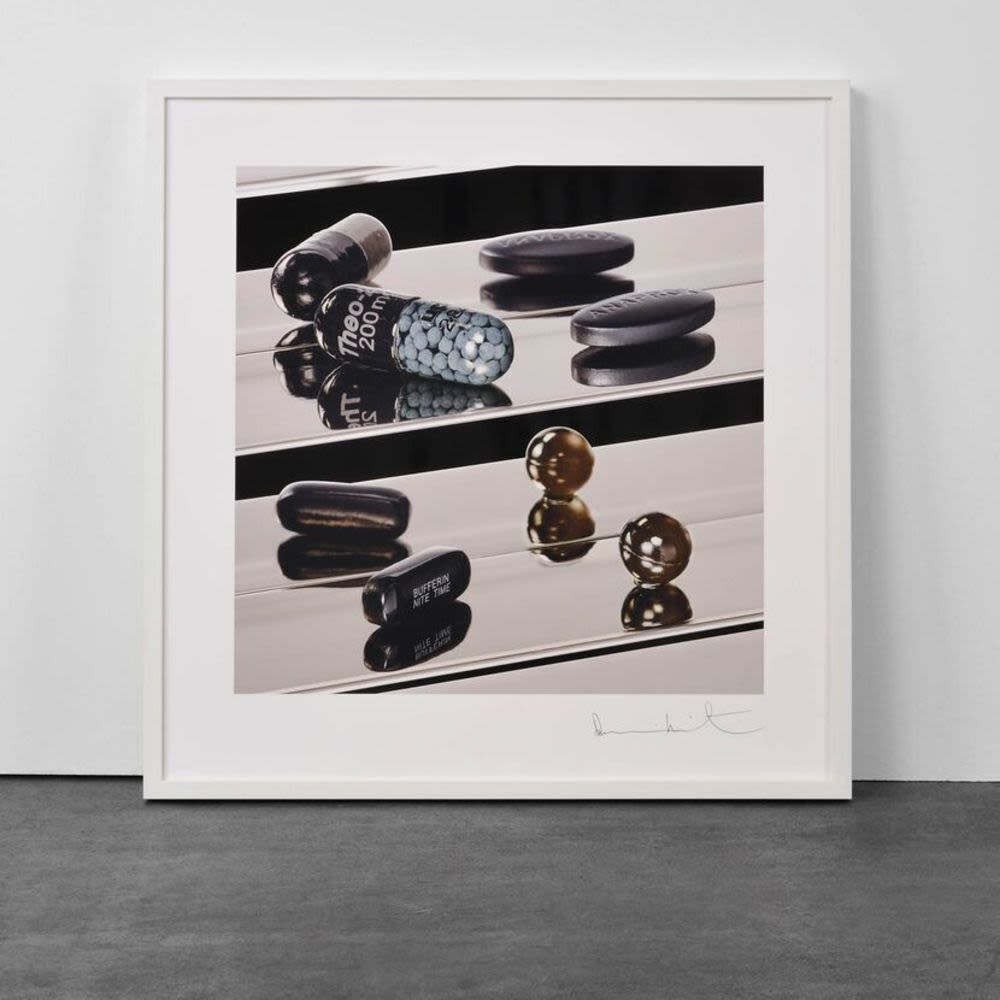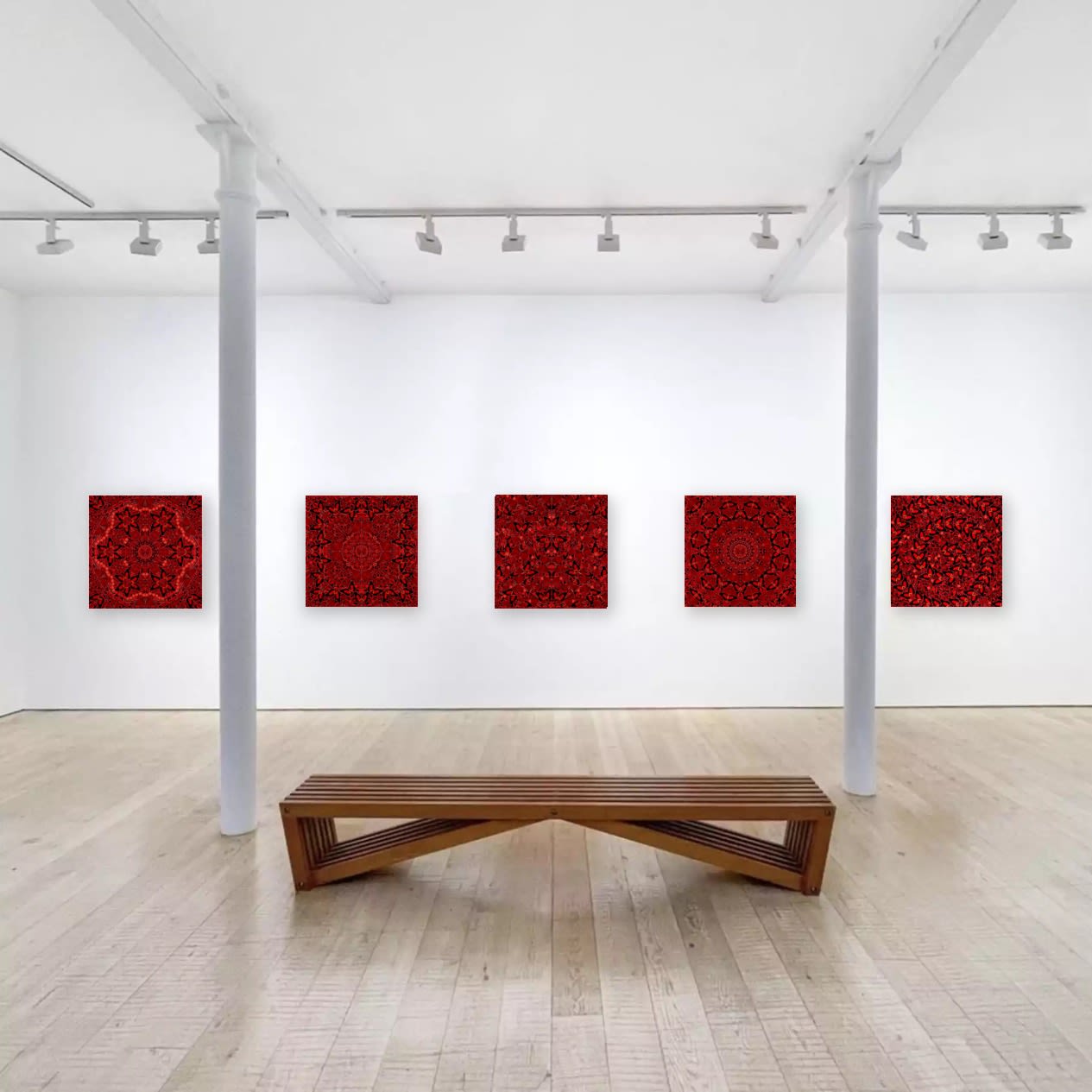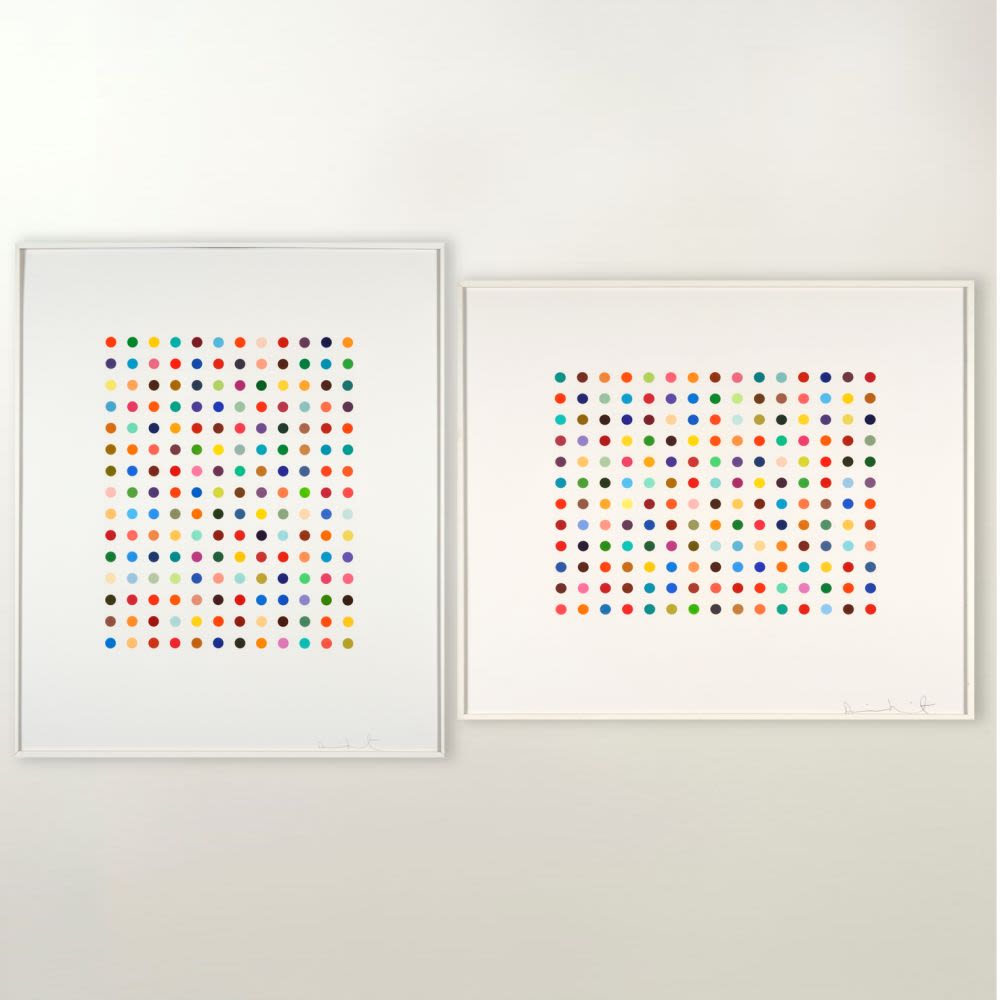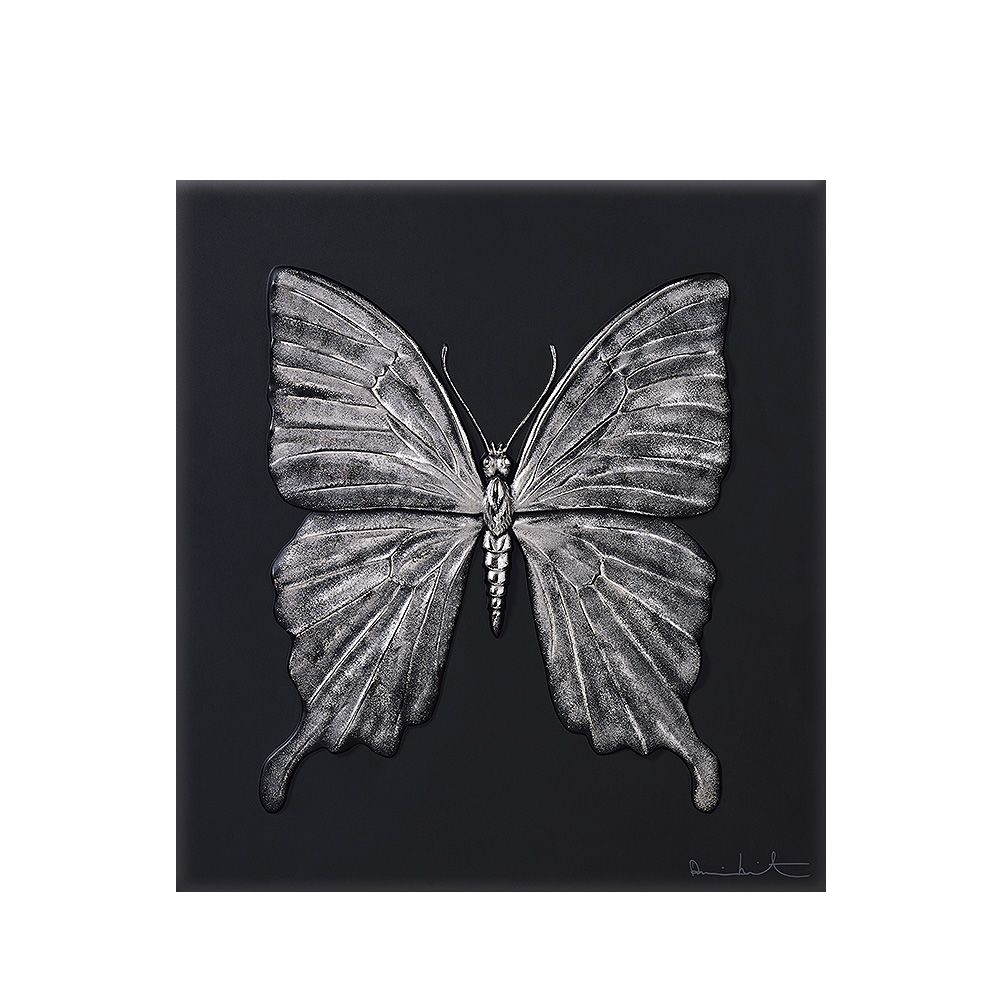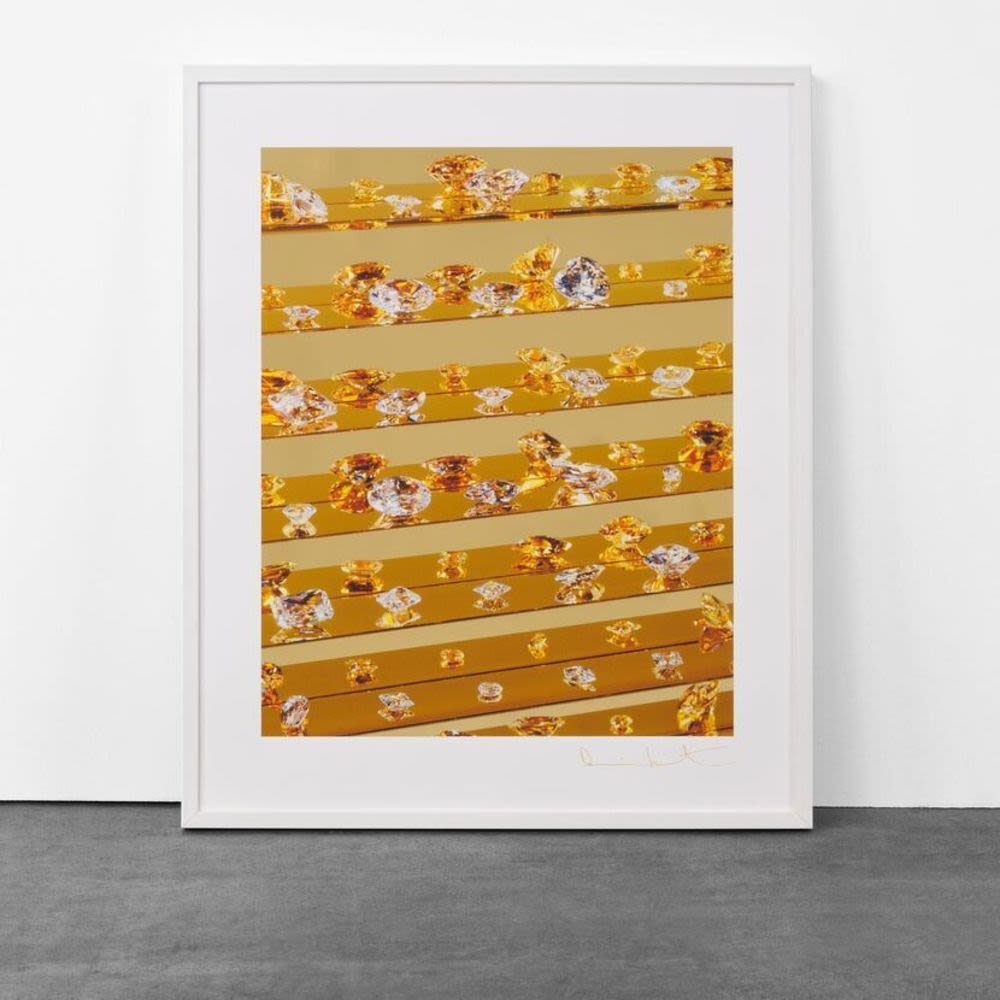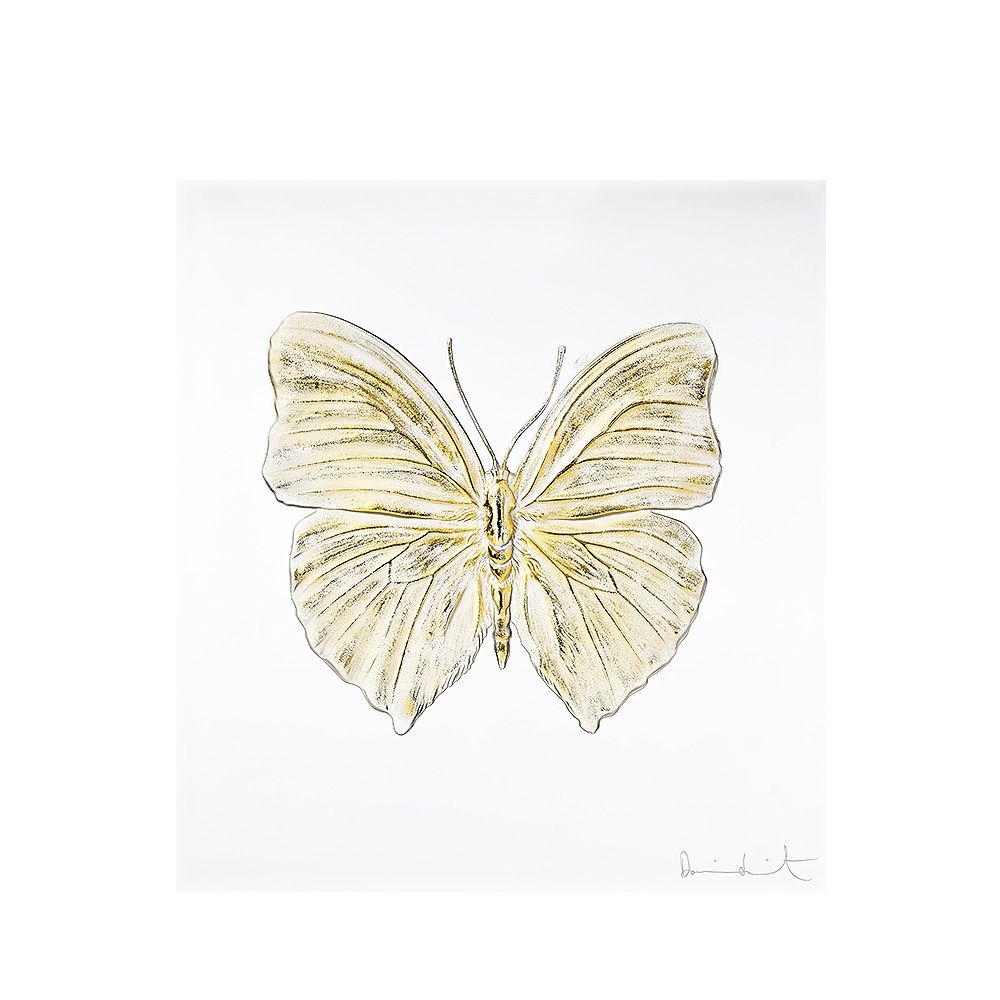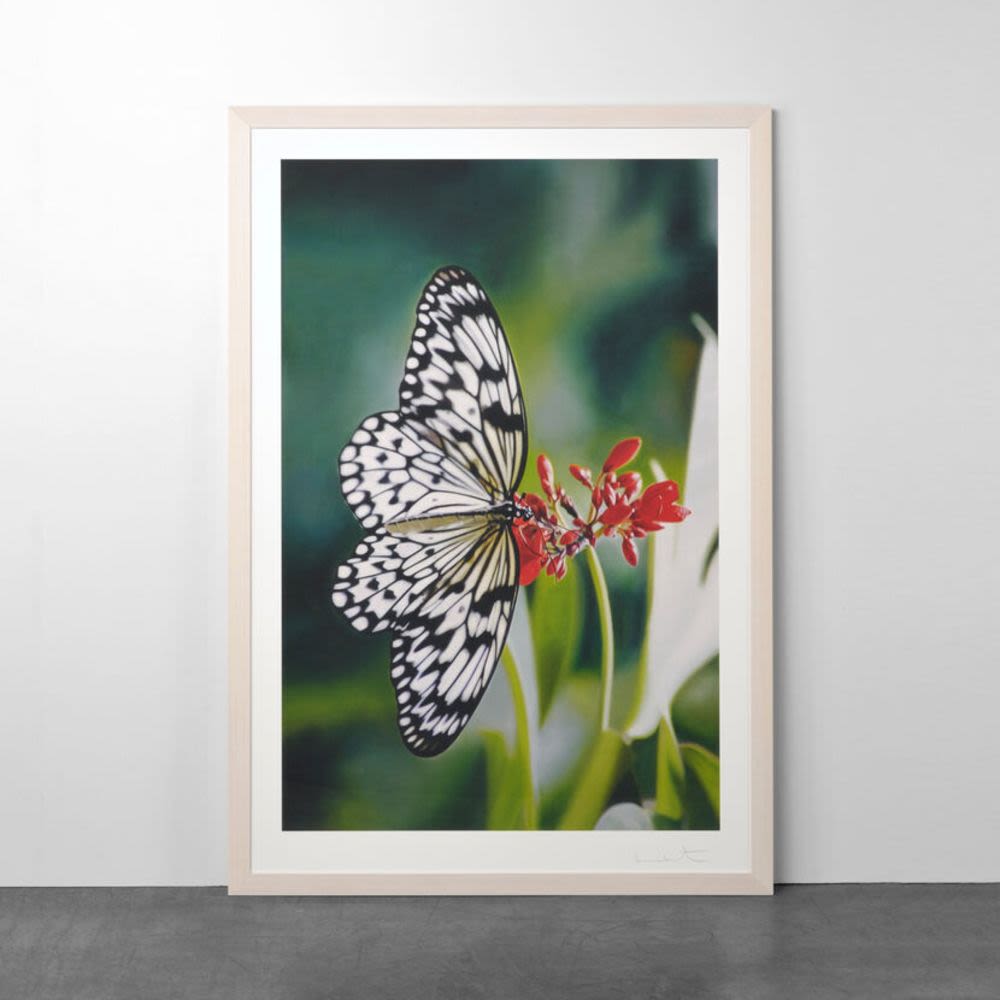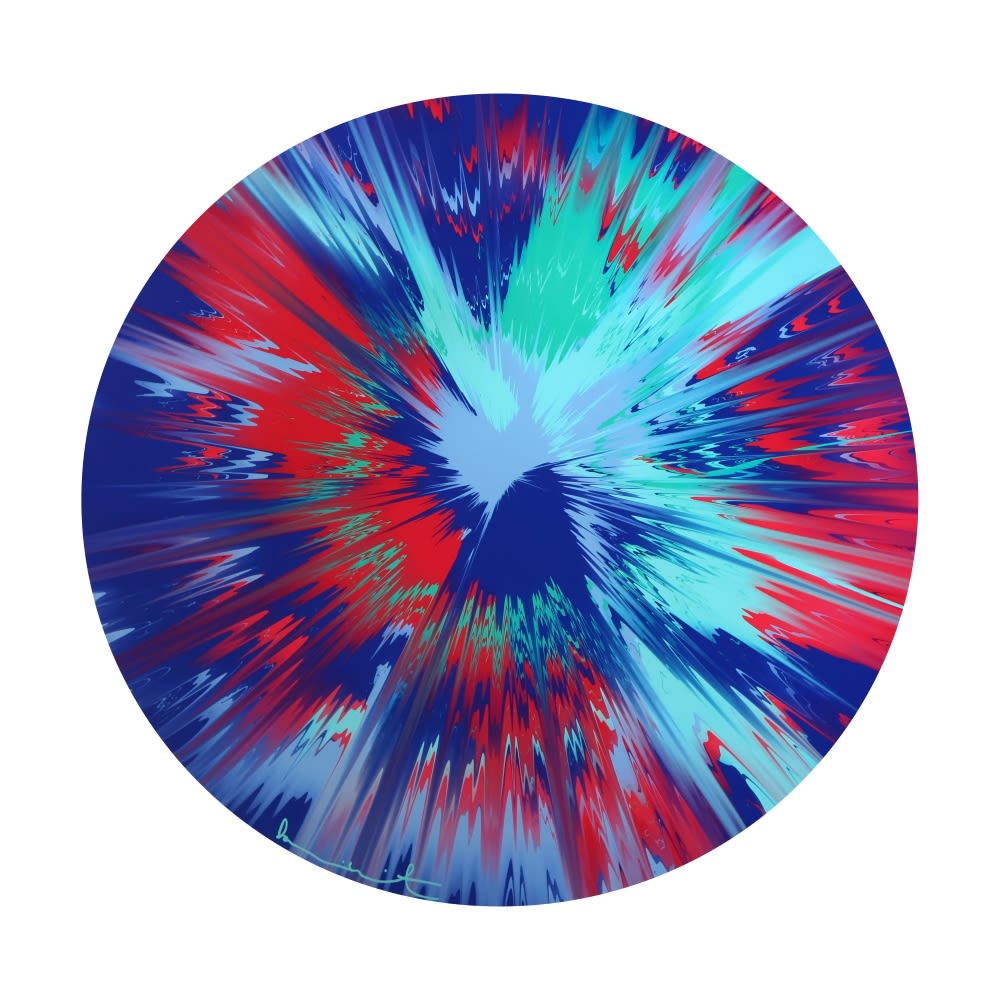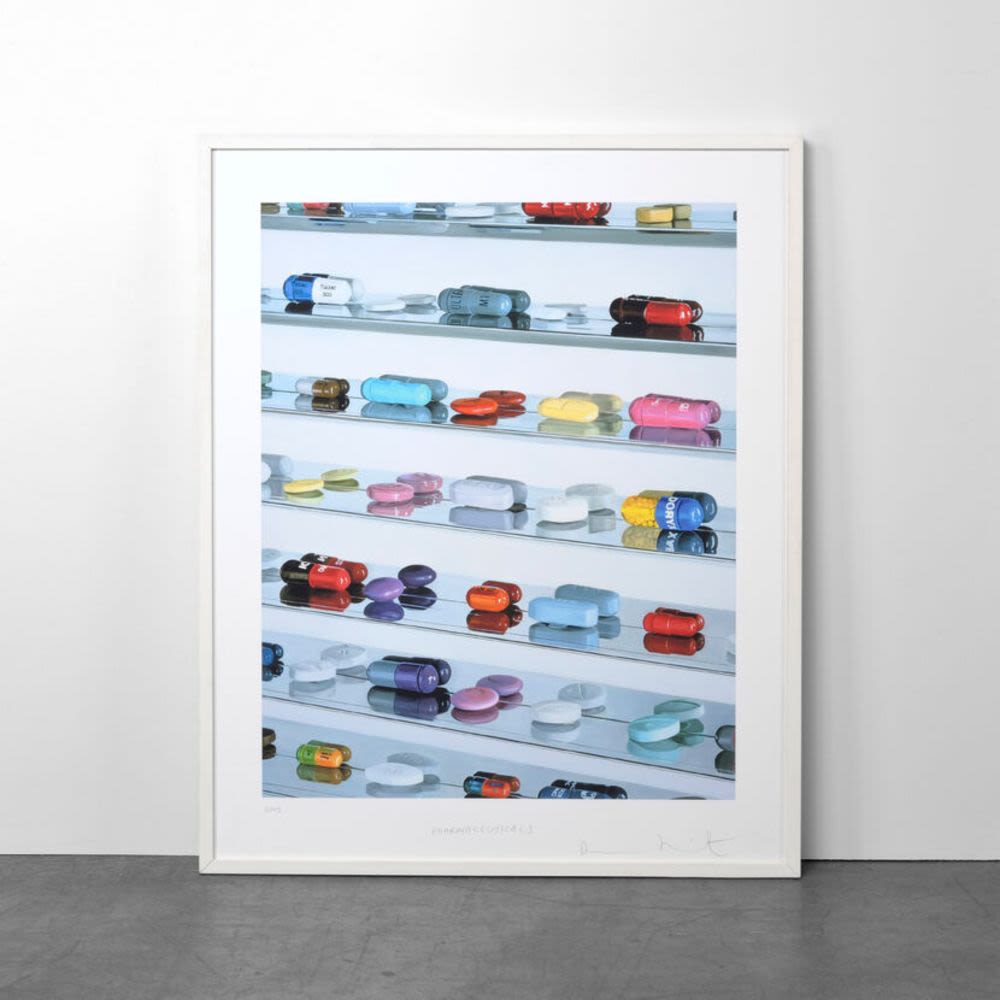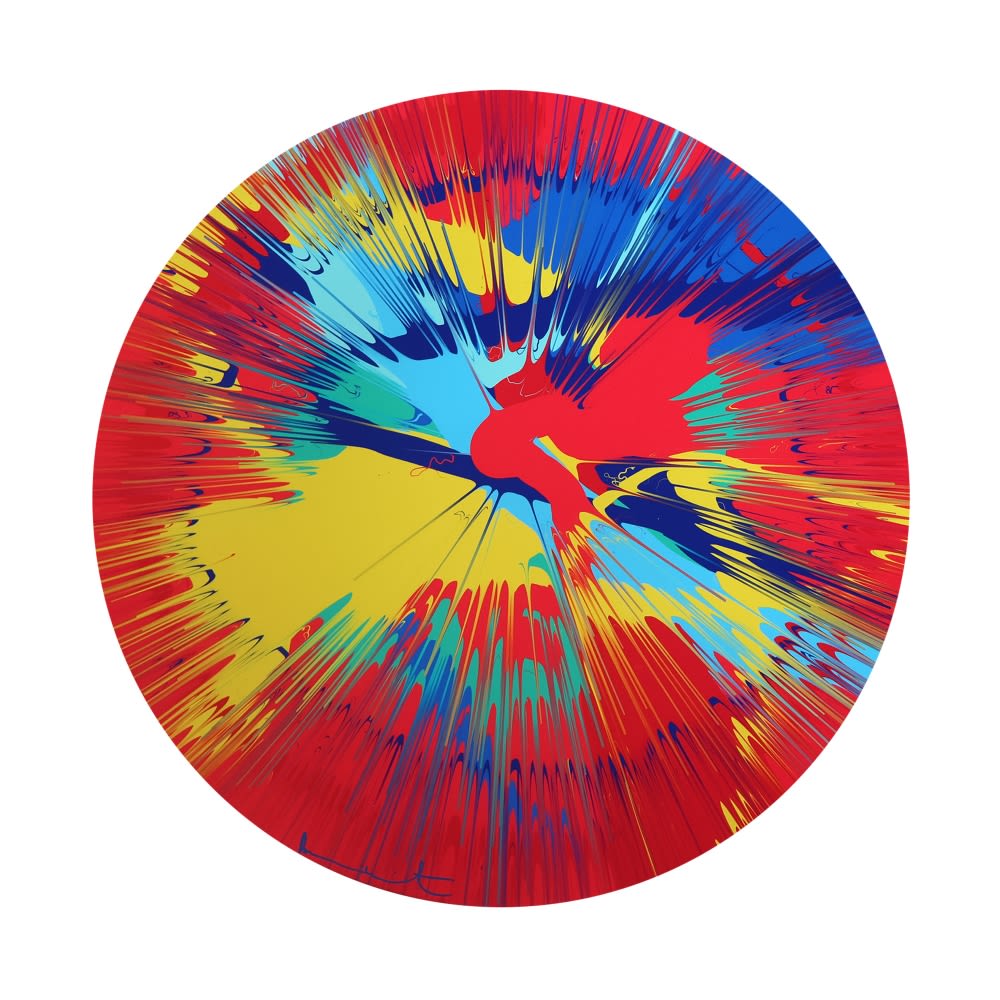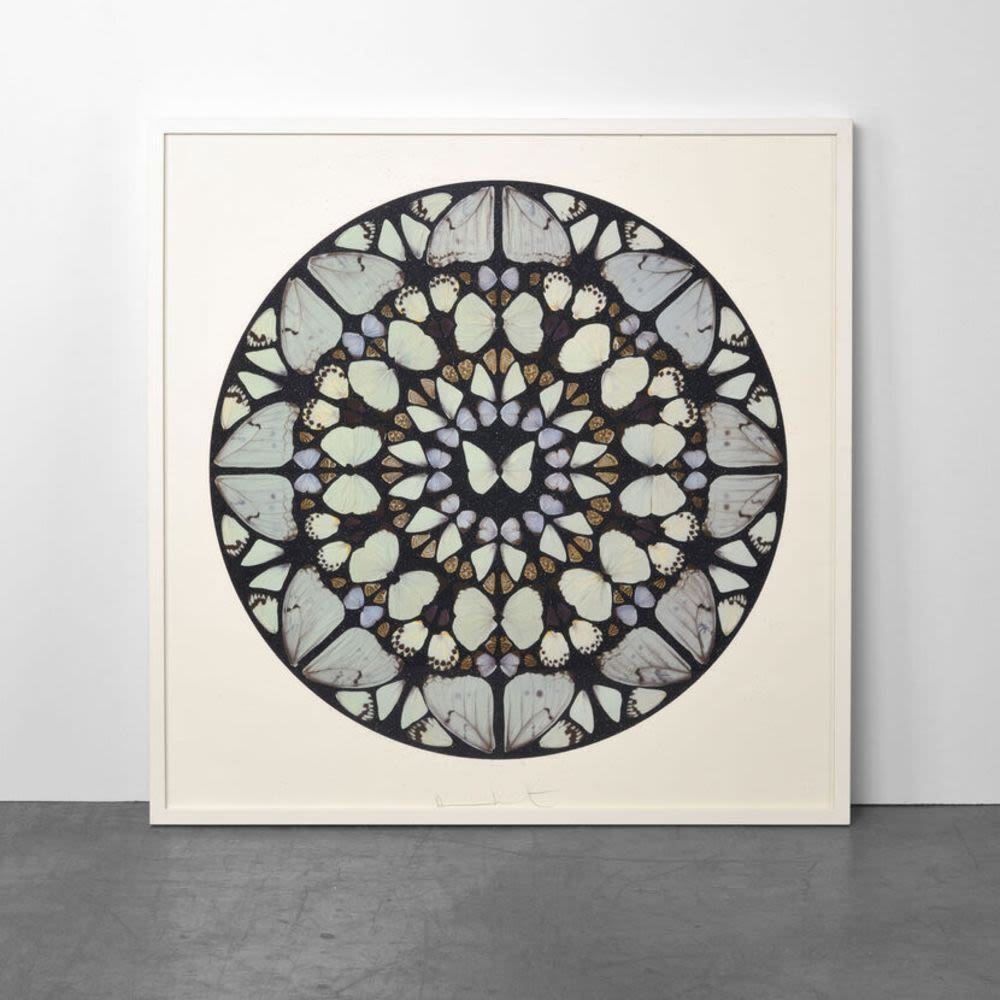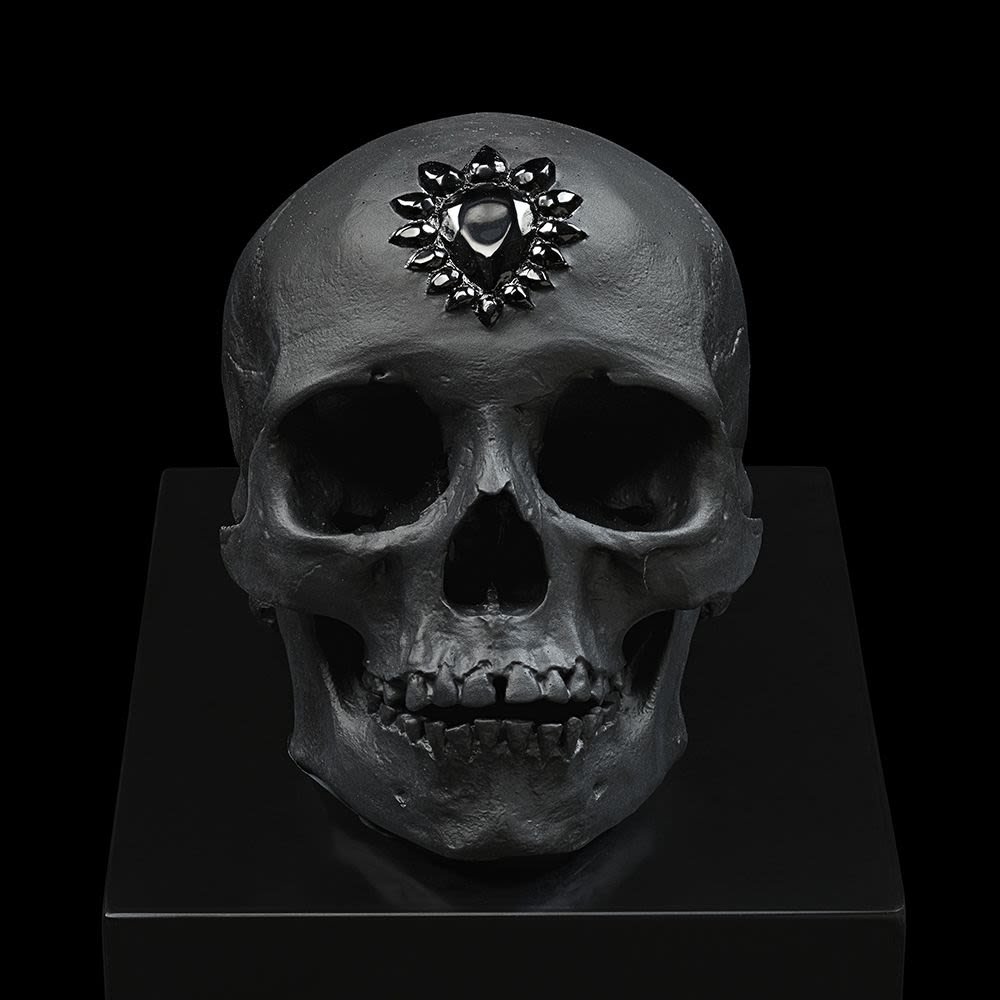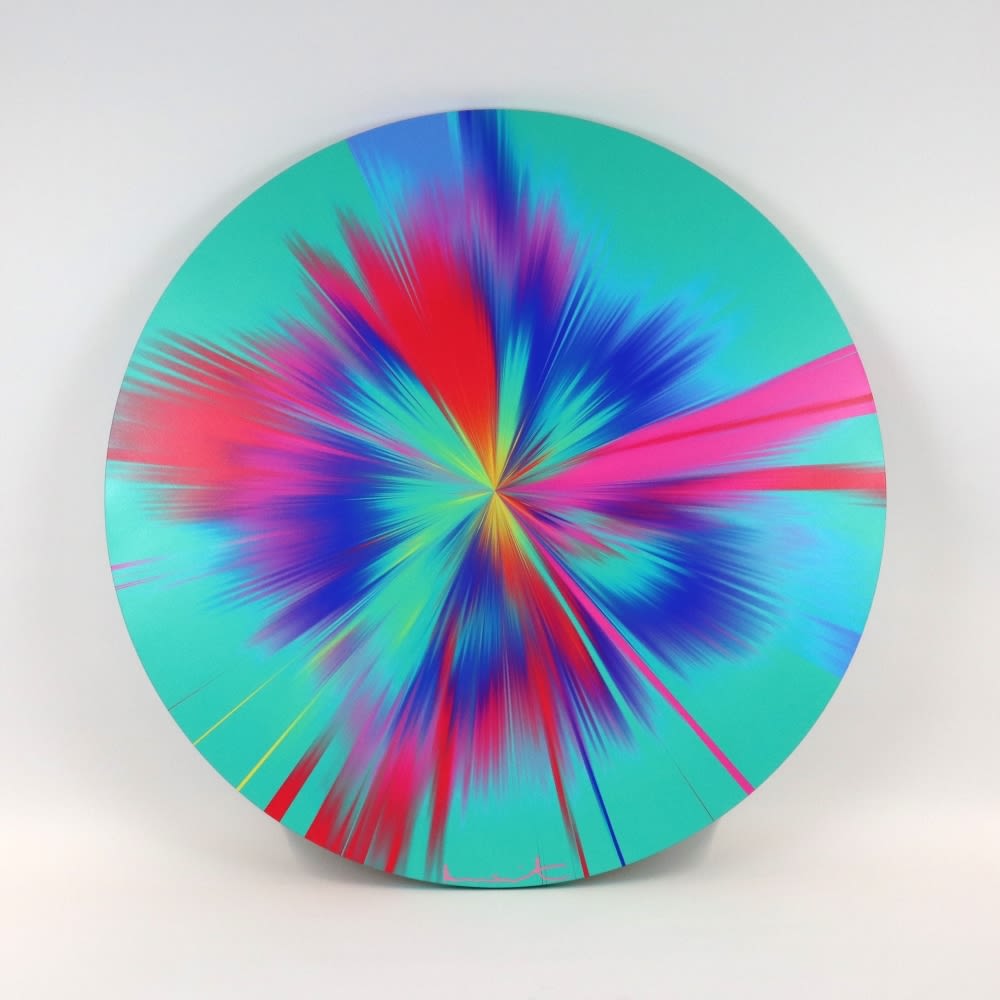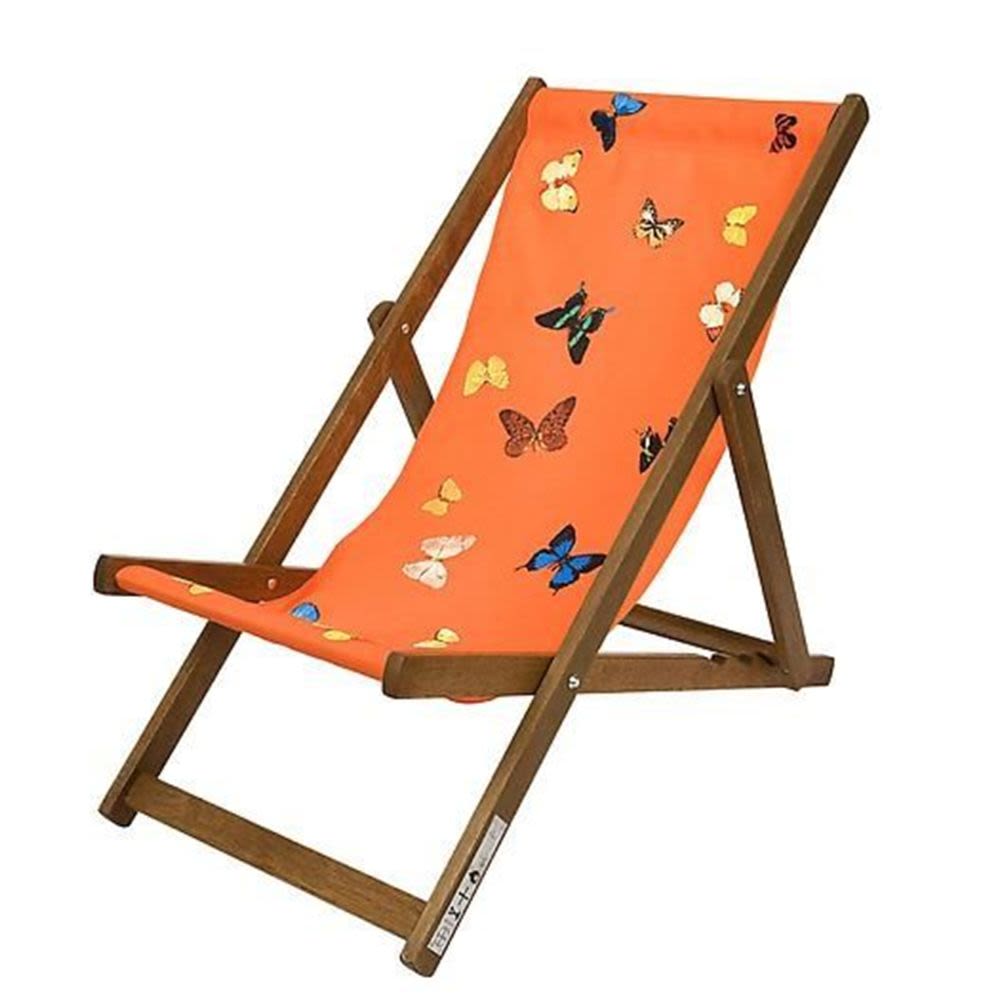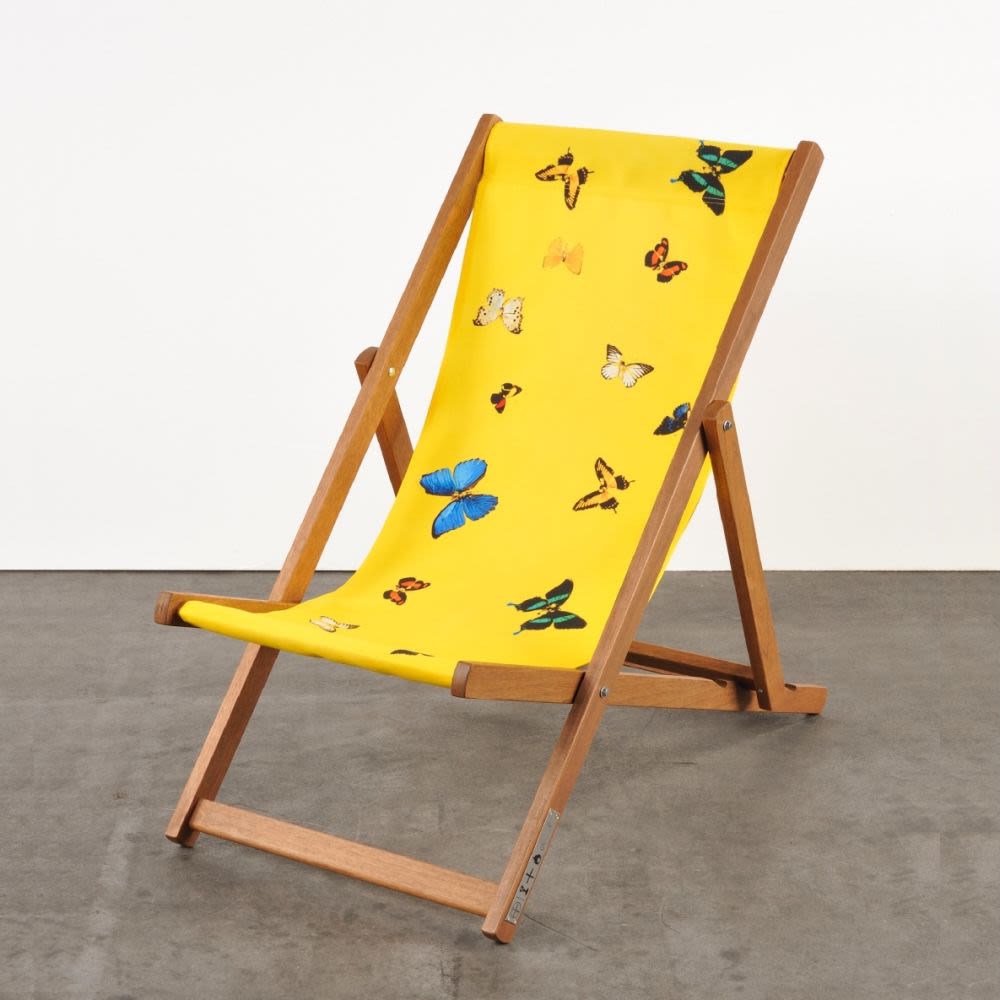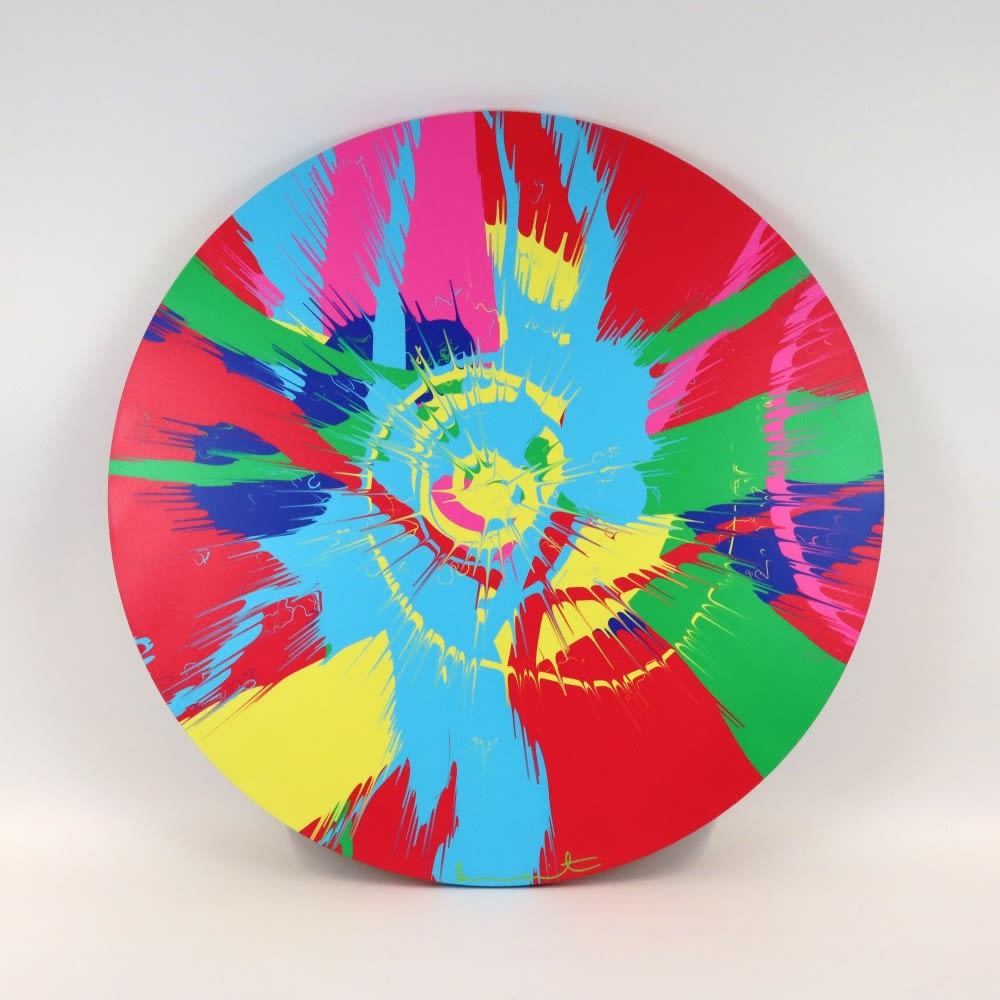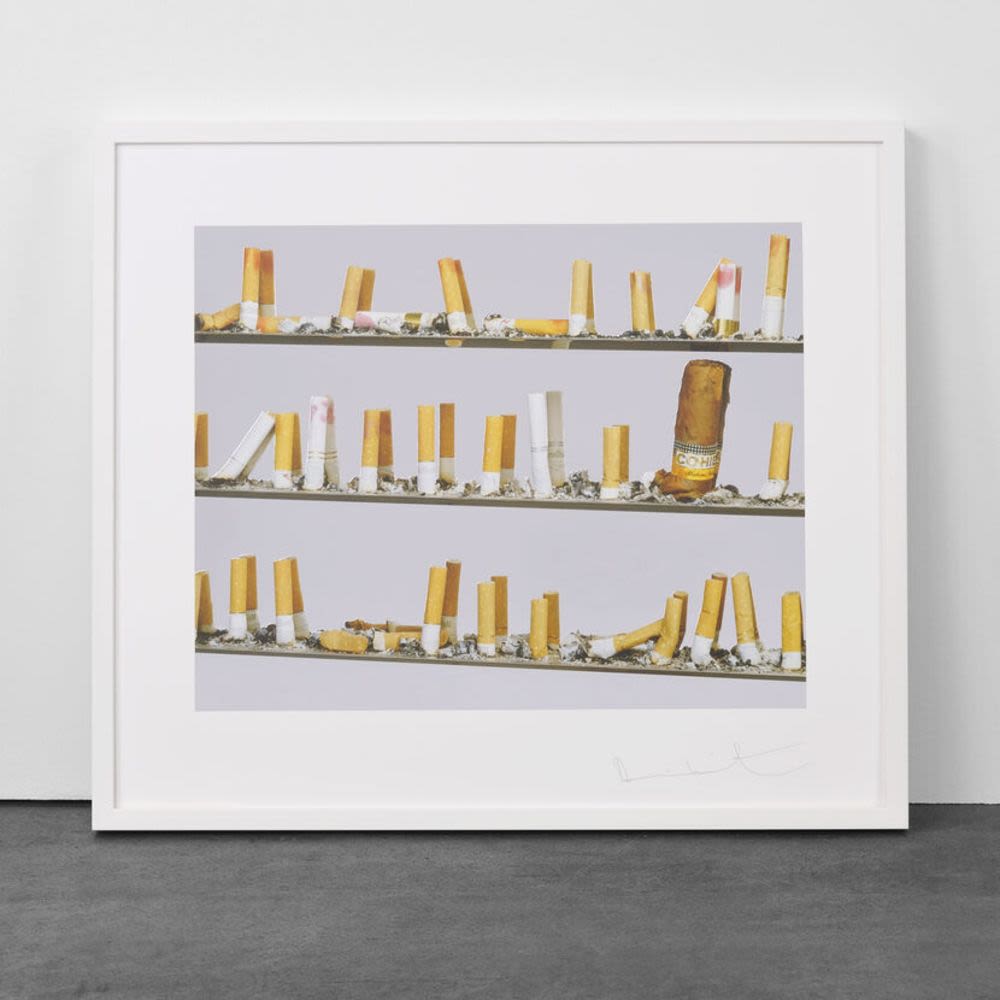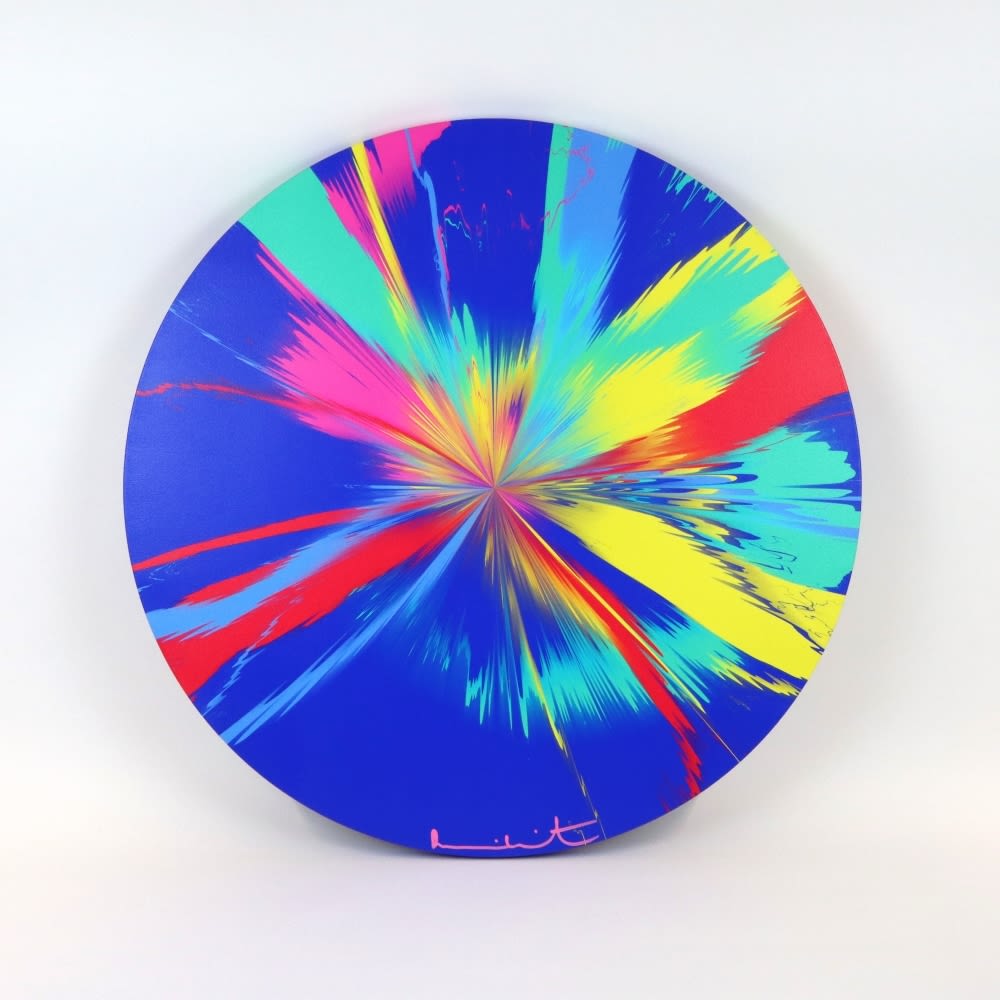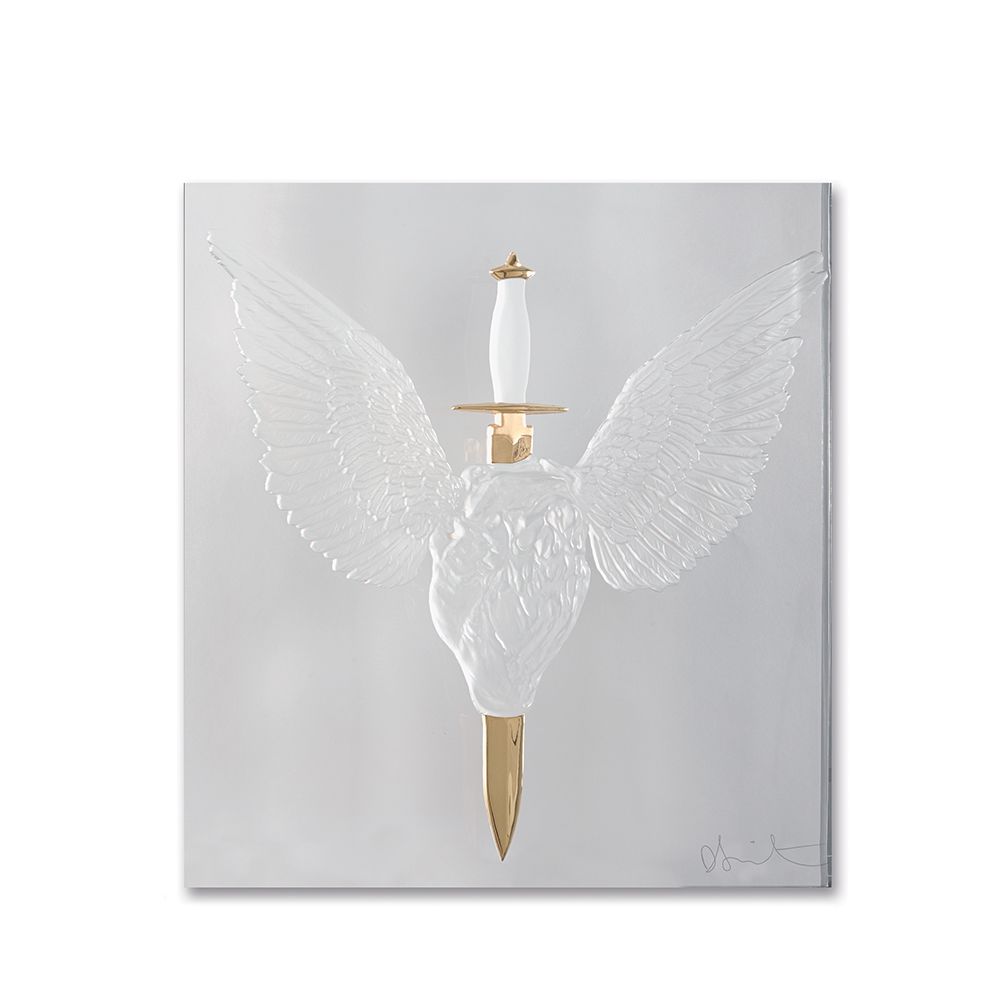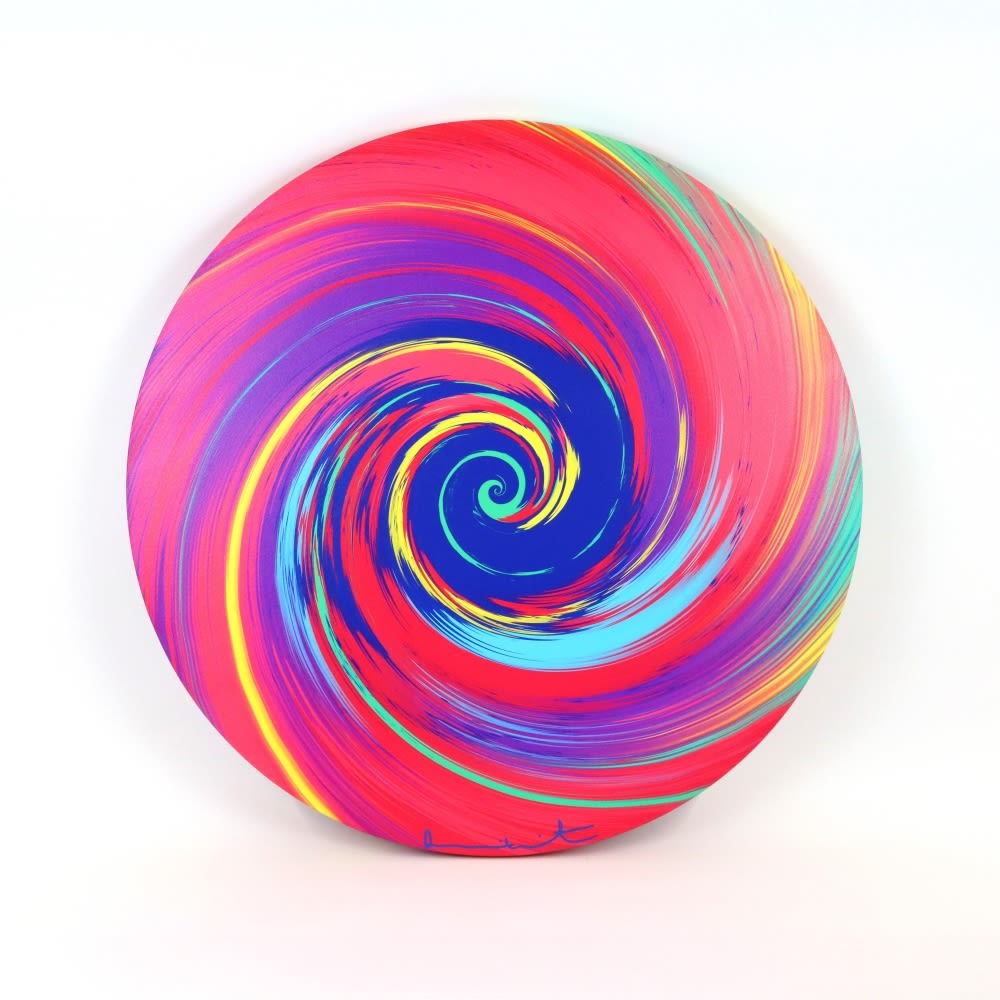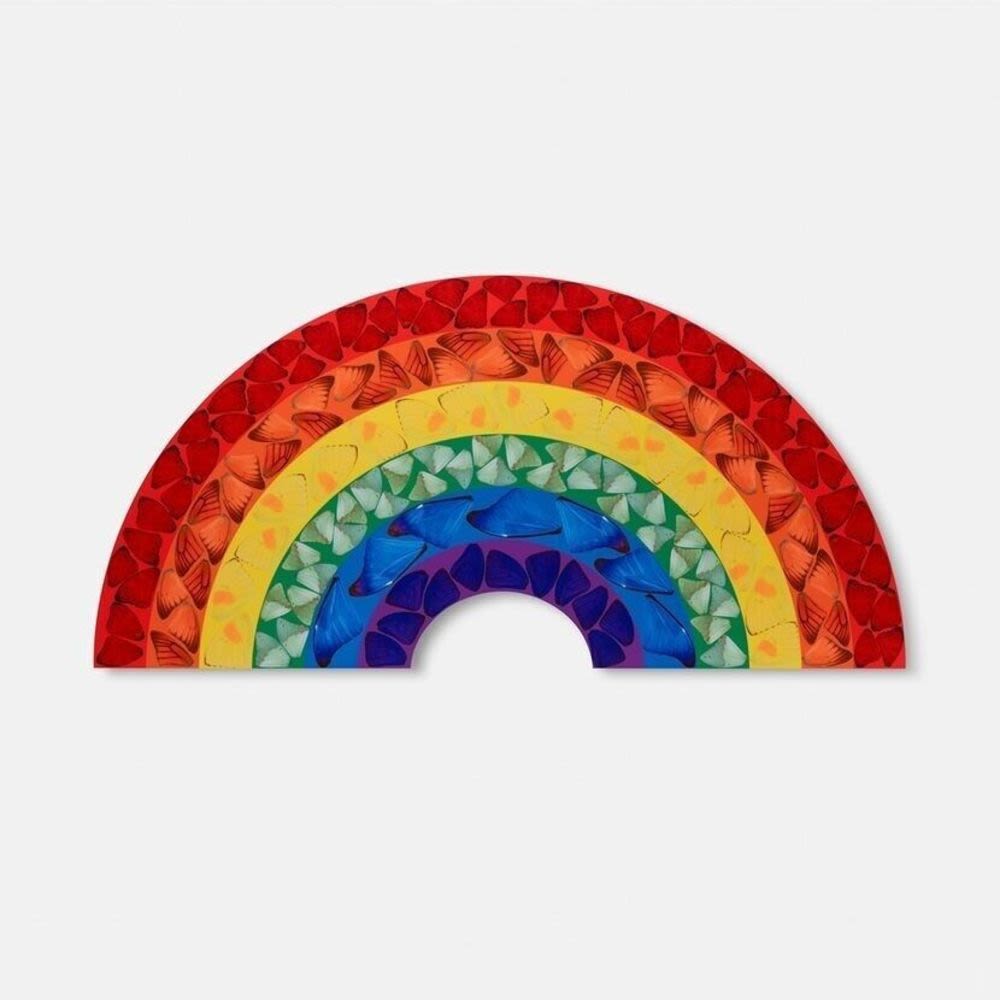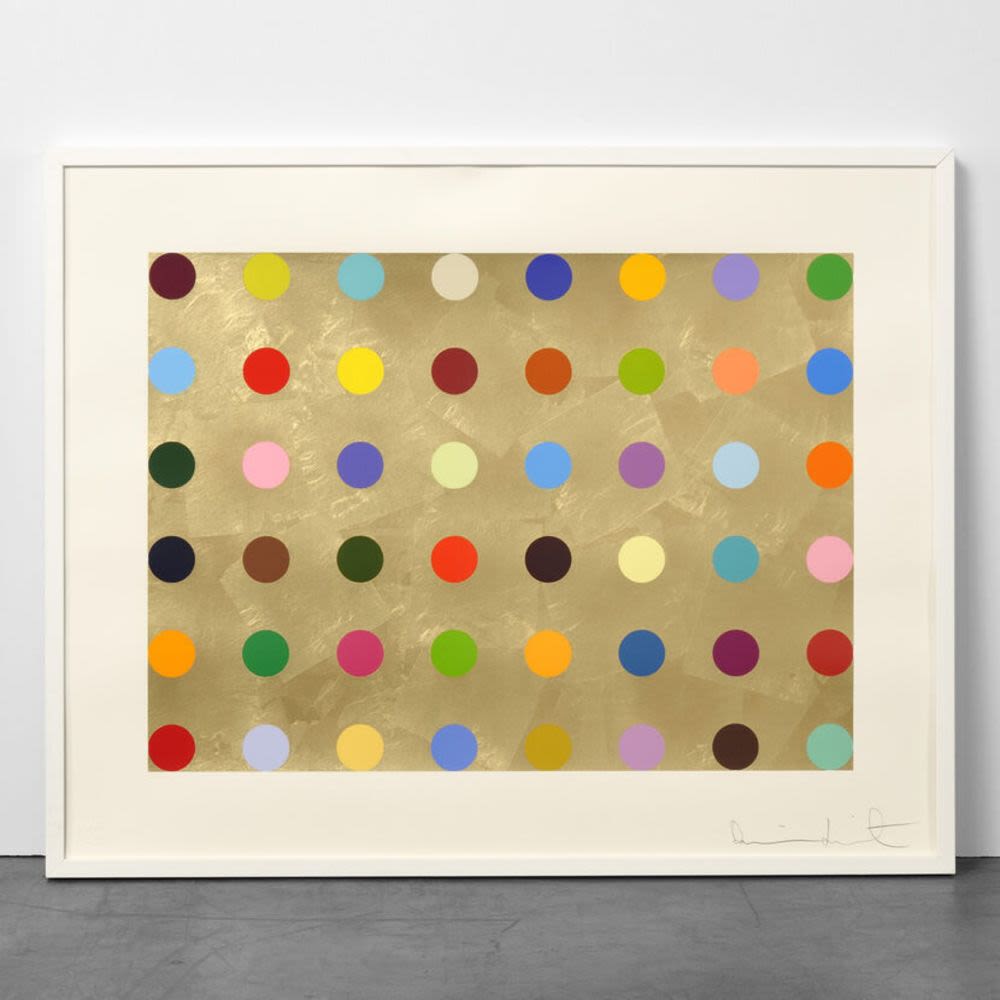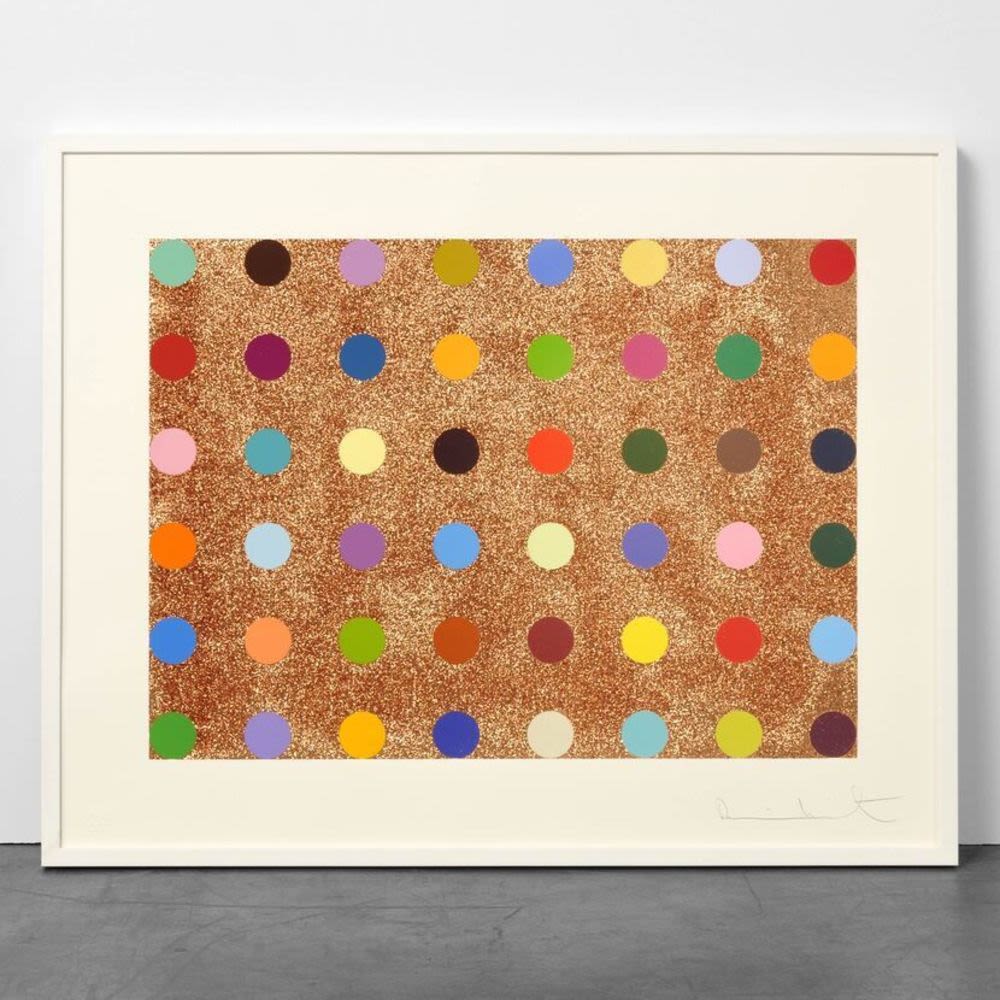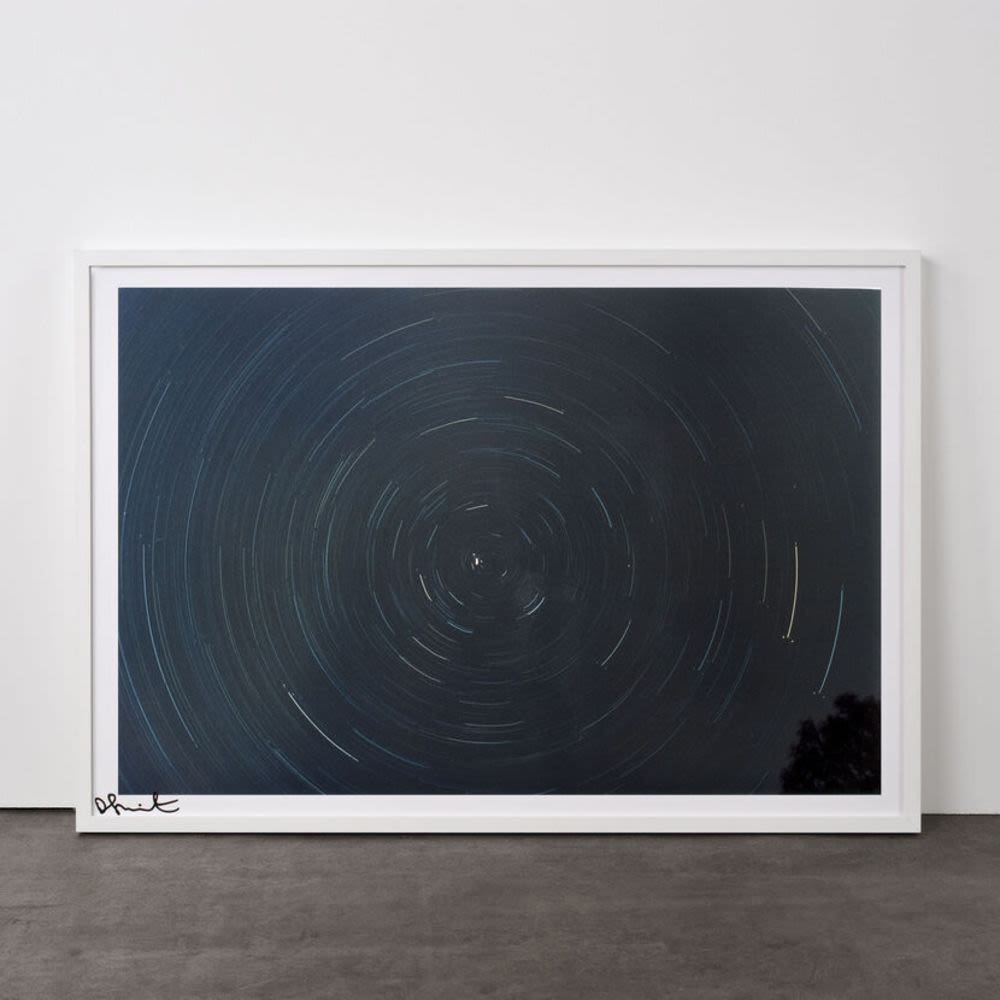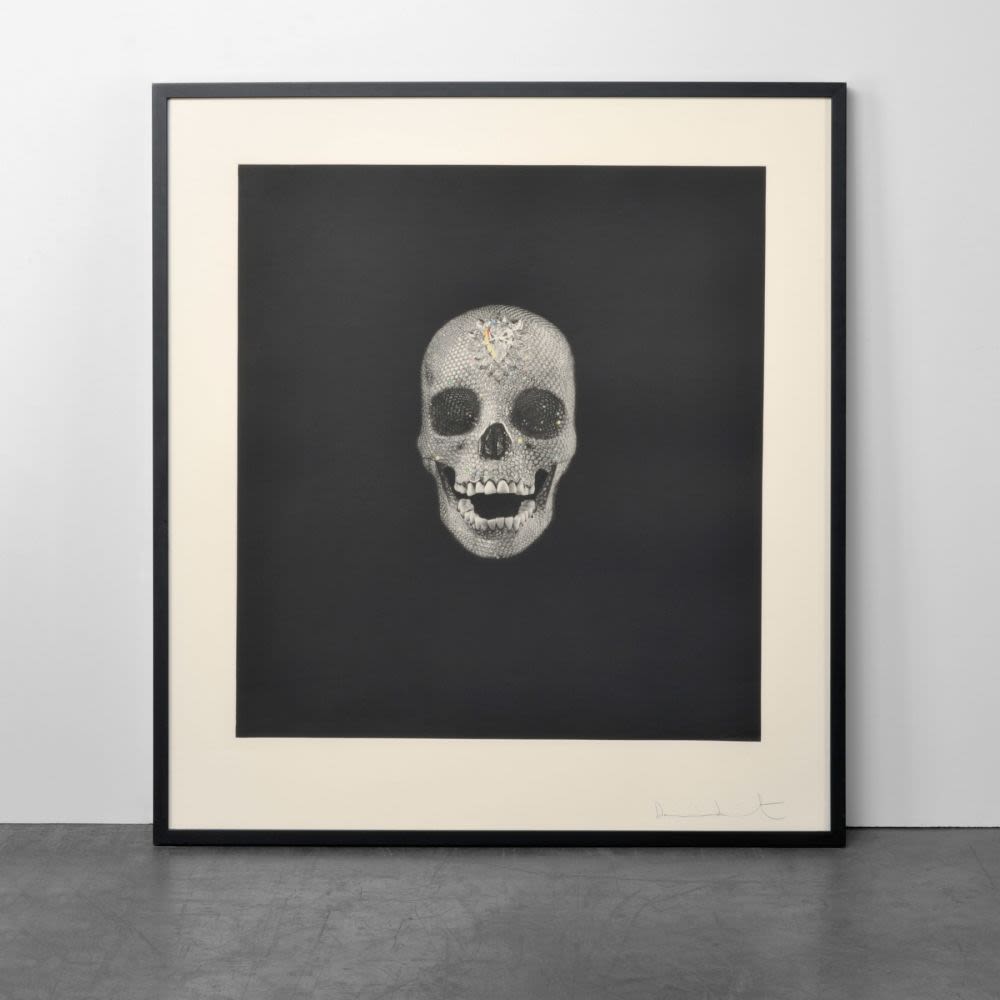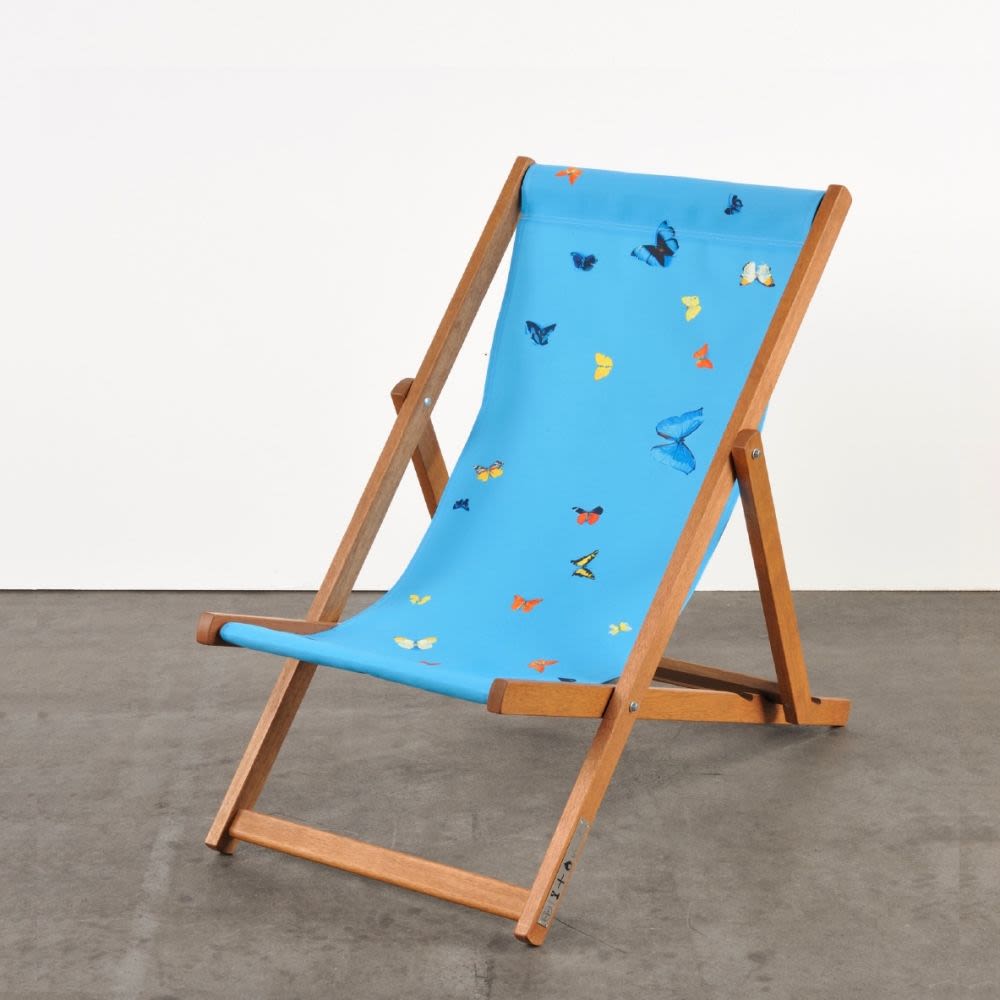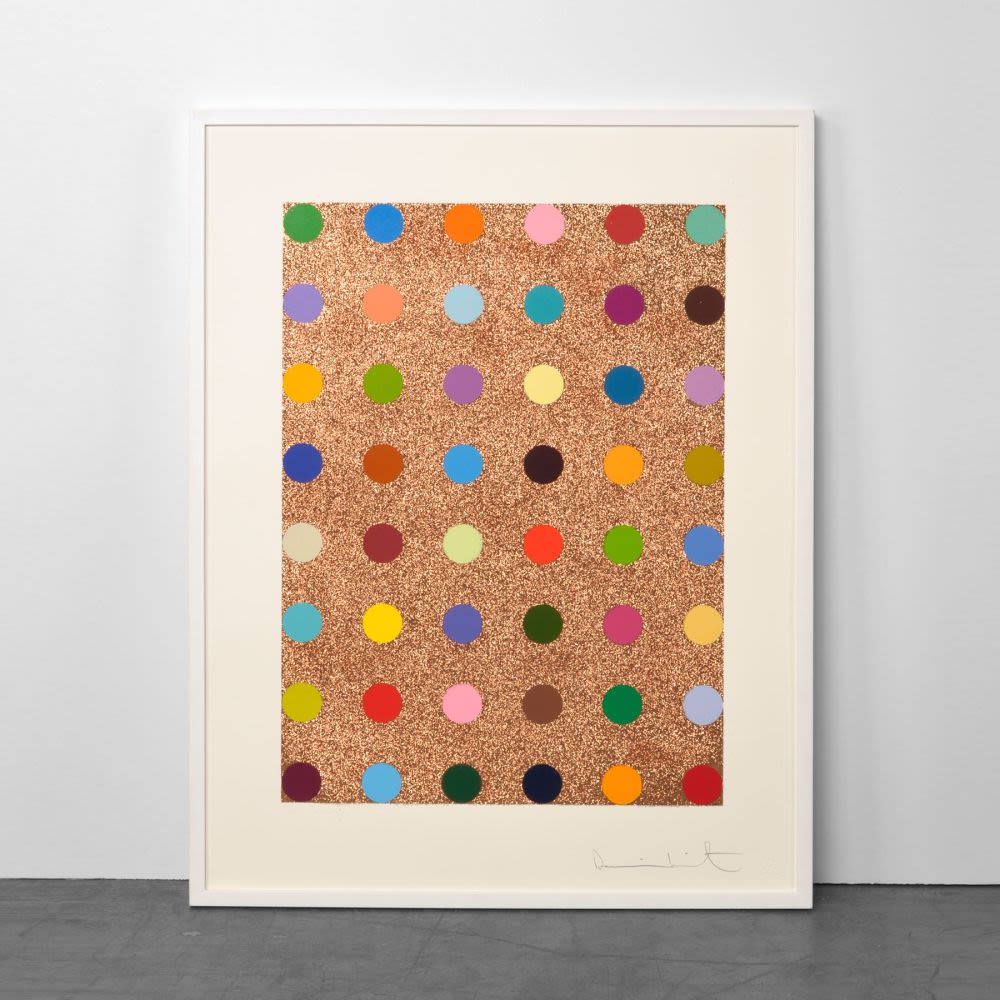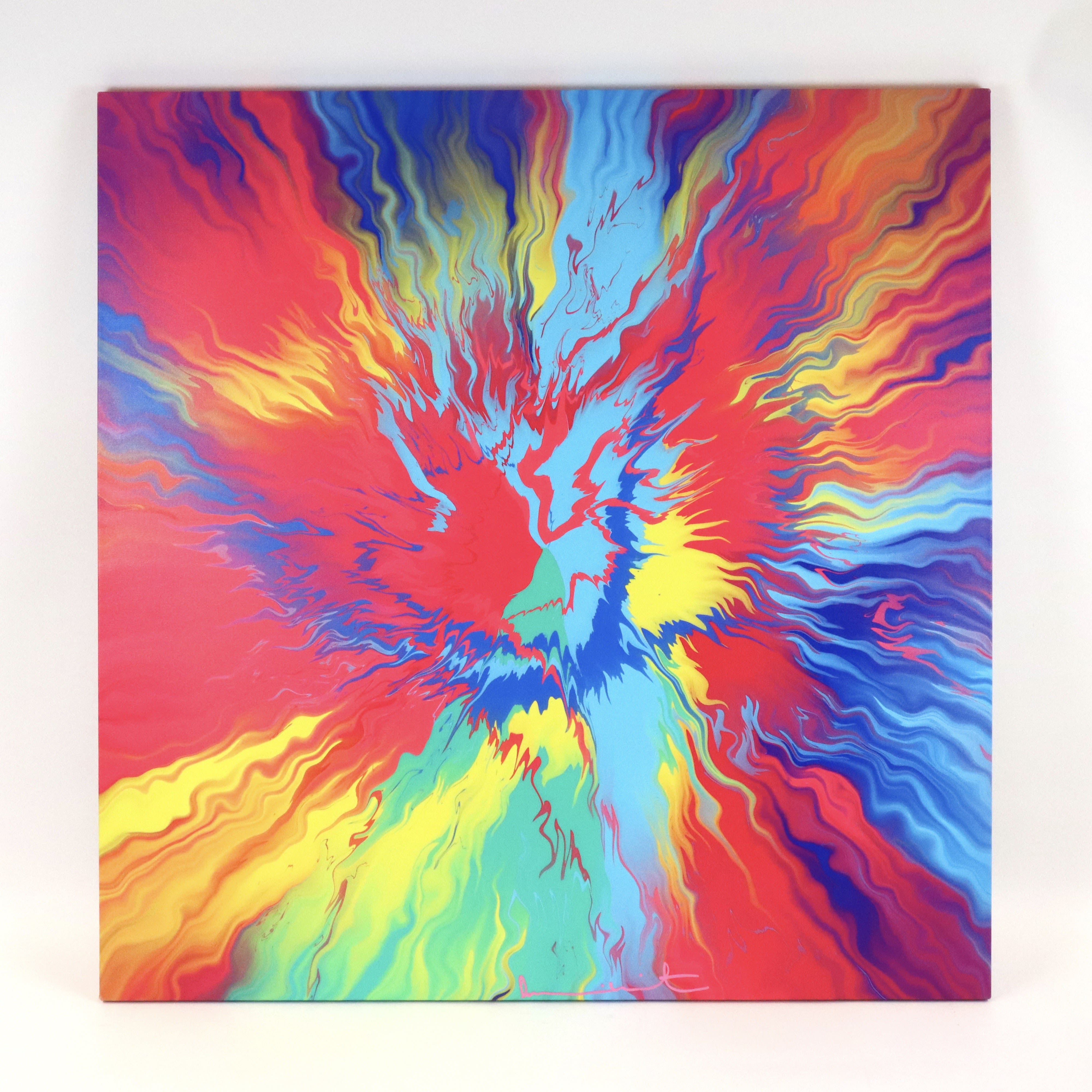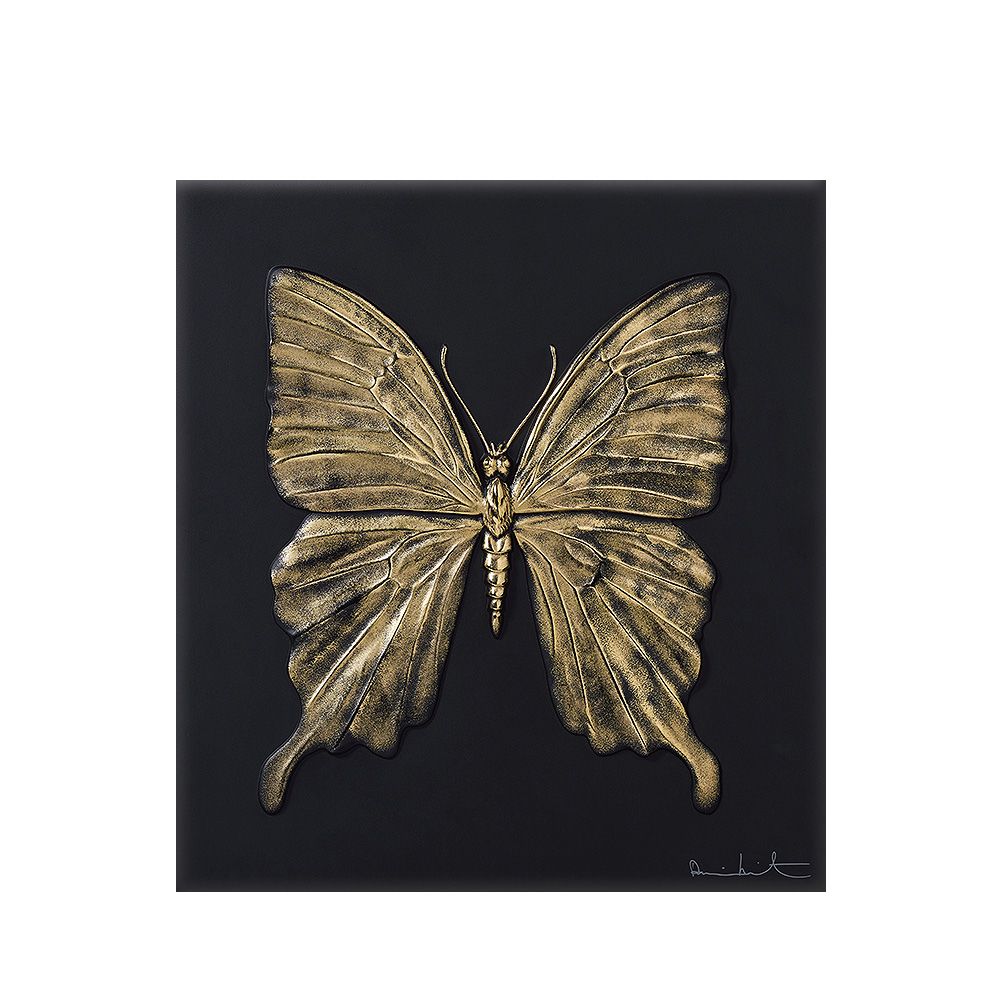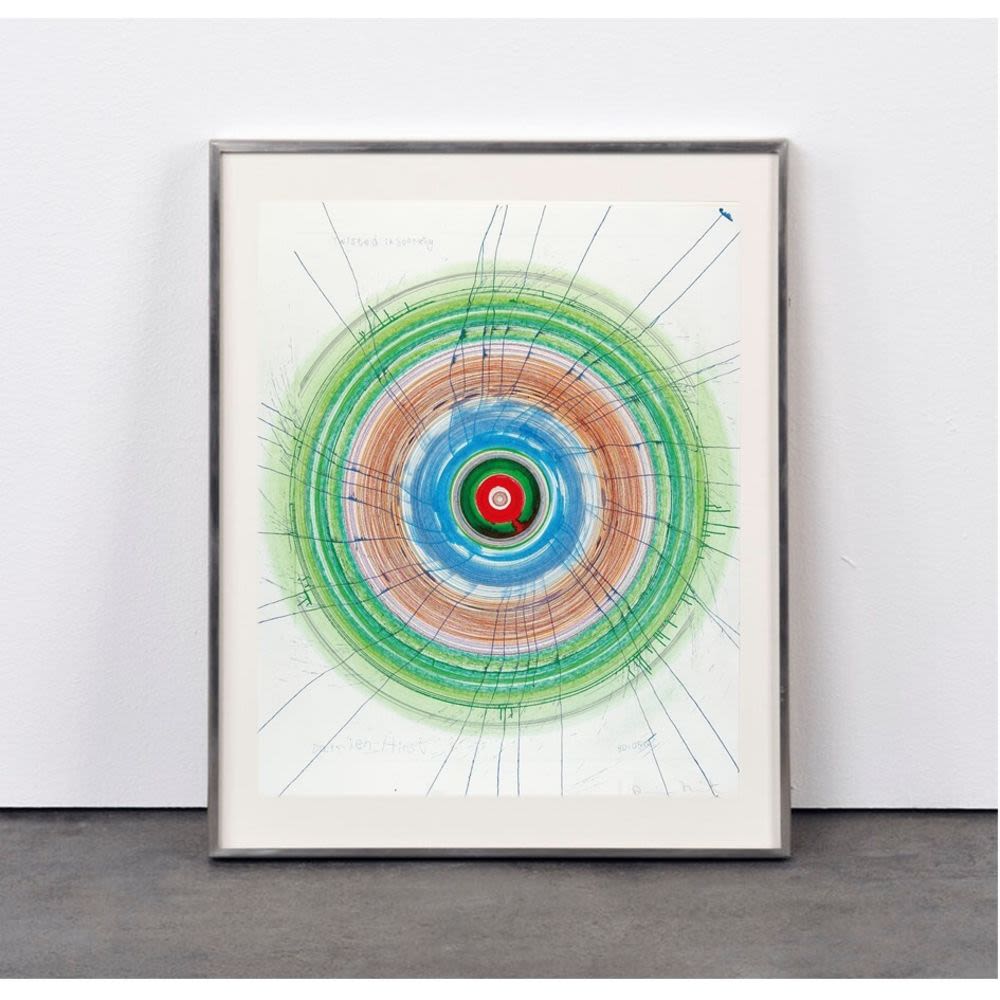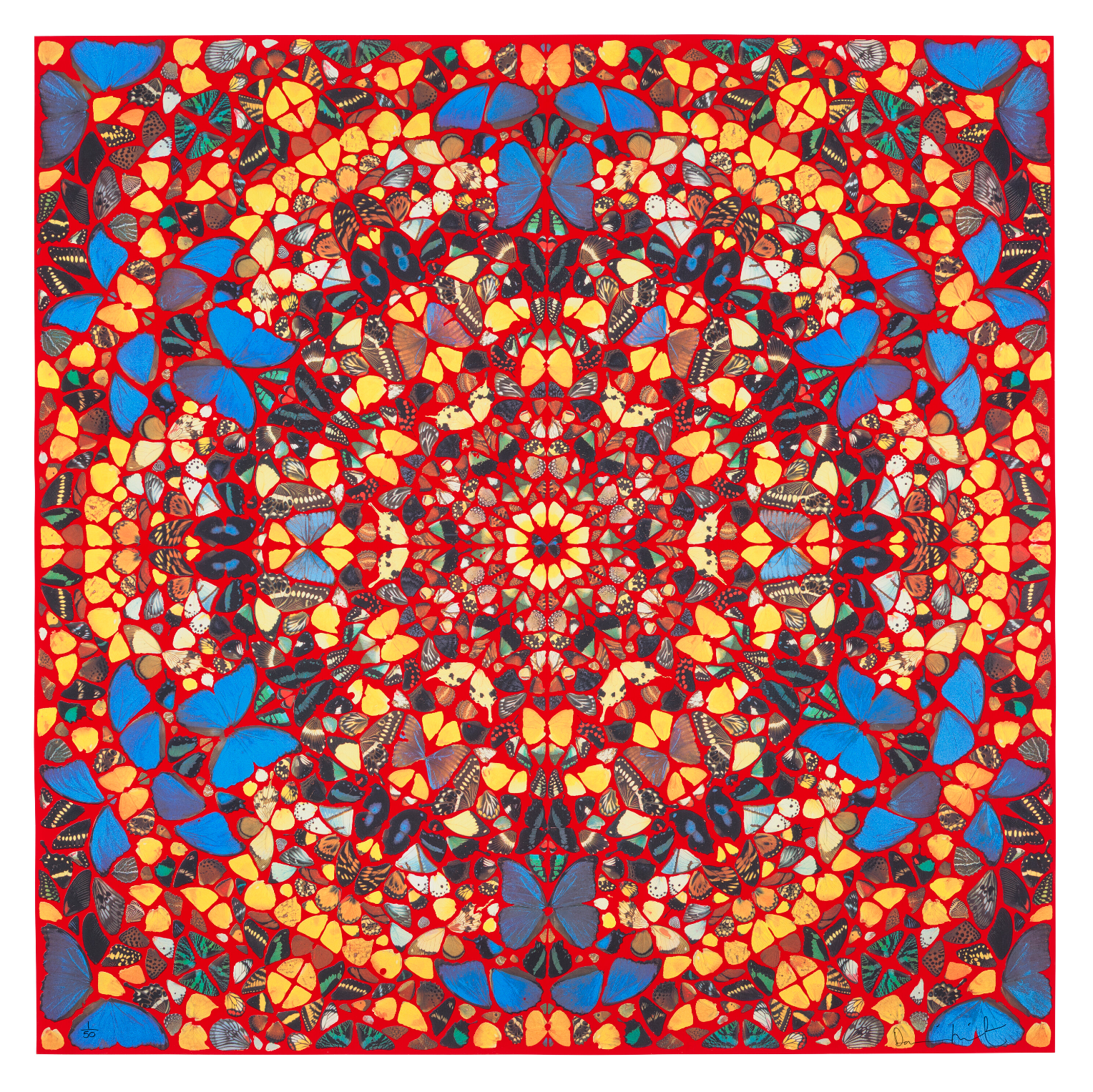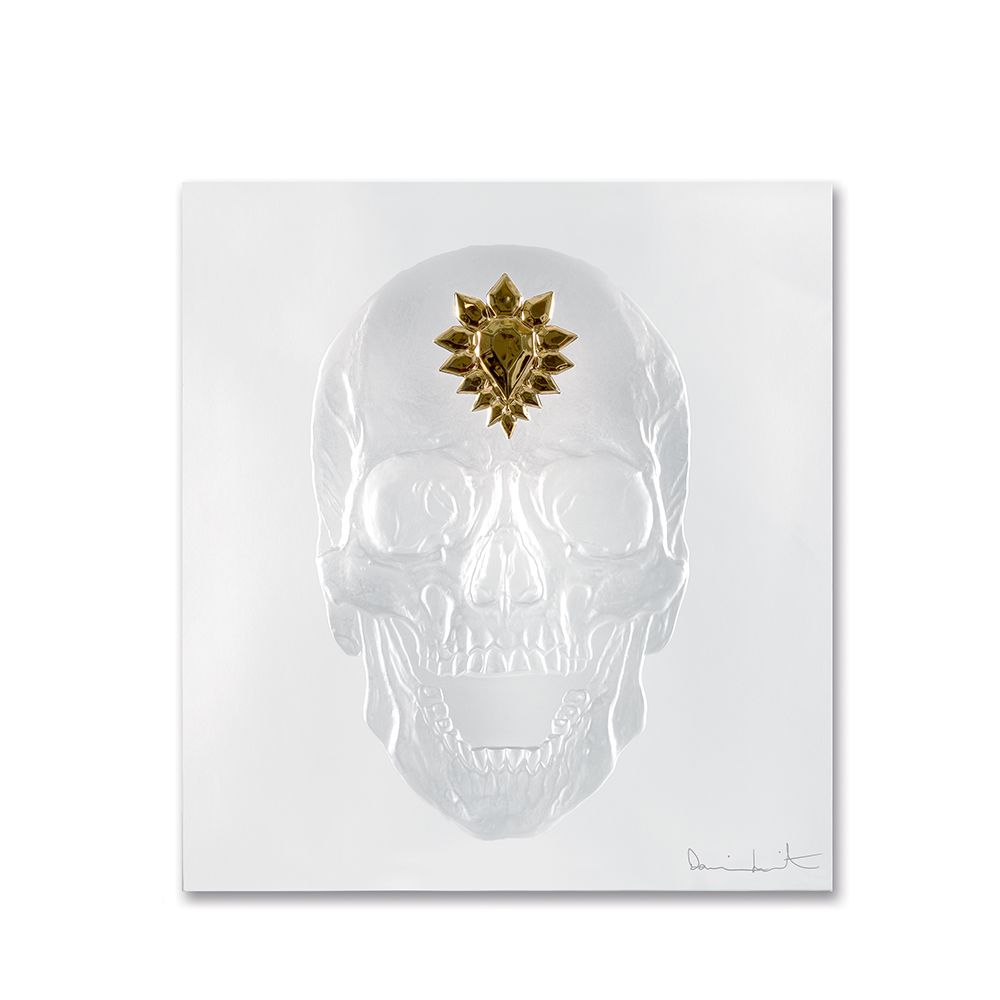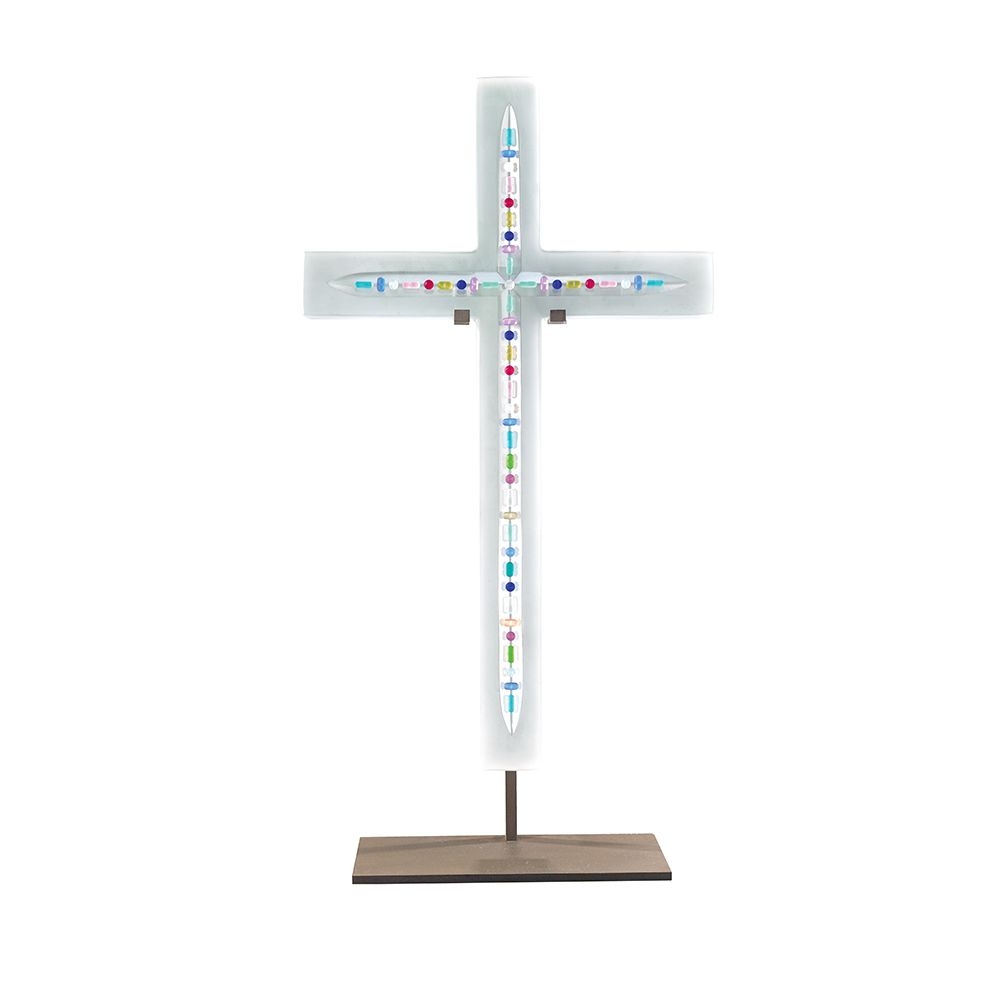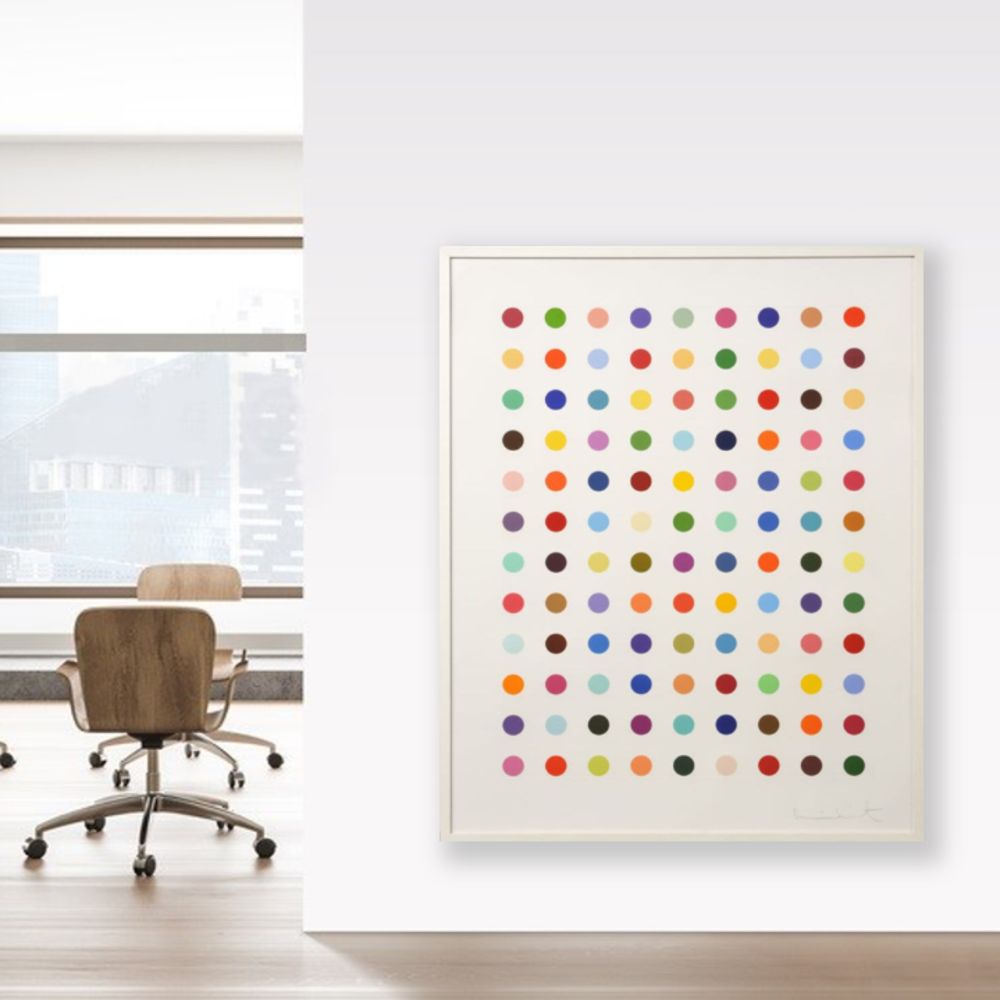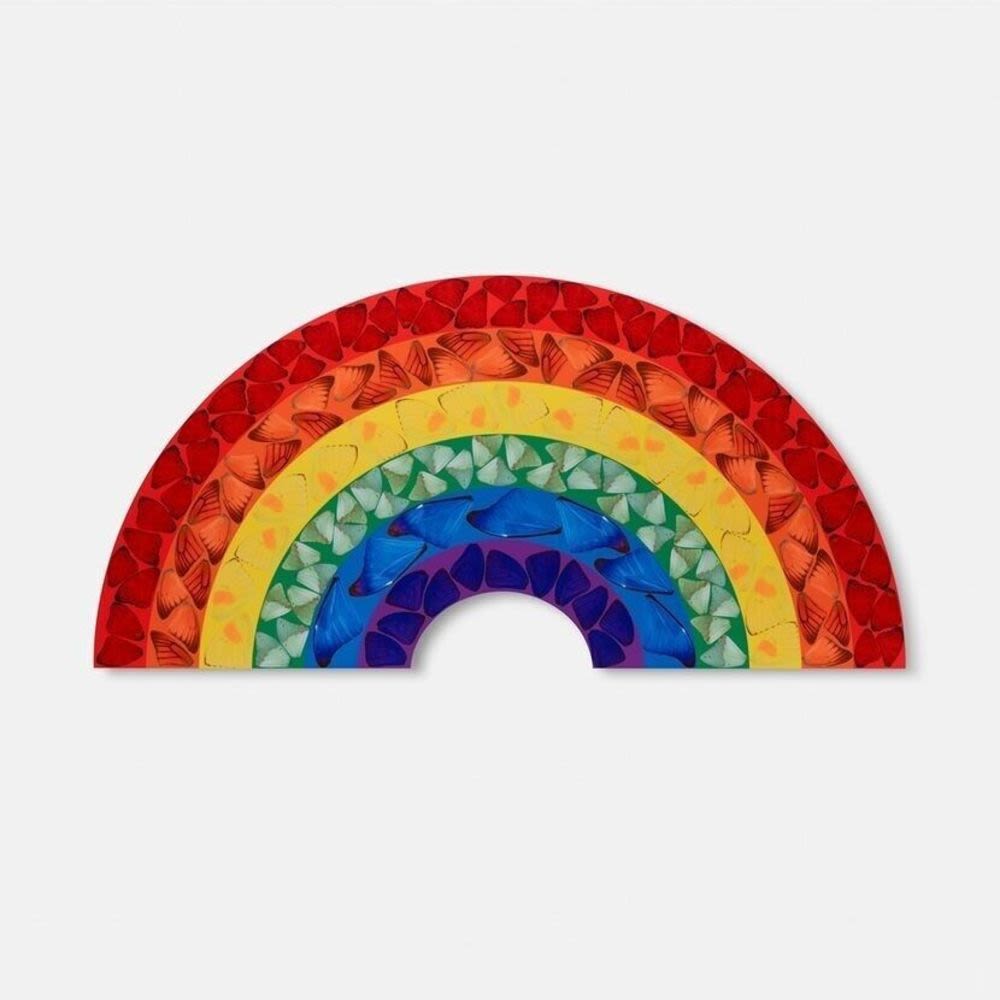Damien Hirst
Damien Hirst (b. 1965, Bristol) is one of the most influential and provocative figures in contemporary art. A leading member of the Young British Artists (YBAs), Hirst rose to prominence in the 1990s with a practice that confronts themes of life, death, science, religion, and consumerism through sculpture, painting, installation, and mixed media. His work is known for its dramatic use of materials—formaldehyde-preserved animals, surgical instruments, pharmaceutical packaging, diamonds, and butterflies—encased in vitrines or arranged in highly polished displays.
Hirst first gained attention while still a student at Goldsmiths College when he curated Freeze (1988), the seminal exhibition that launched the YBAs. He won the Turner Prize in 1995 and became closely associated with collector Charles Saatchi, before breaking away in 2003. His landmark work The Physical Impossibility of Death in the Mind of Someone Living (1991)—a tiger shark suspended in formaldehyde—became an icon of 1990s British art and epitomized his Natural History series.
Known for his exploration of repetition, belief, and spectacle, Hirst has produced major series including the Spot Paintings (1986–), Pharmaceutical Cabinets (1988–2012), and Butterfly Paintings (2001–08). His controversial For the Love of God (2007)—a platinum-cast human skull encrusted with 8,601 diamonds—underscored his fascination with mortality, beauty, and value.
In 2008, Hirst made headlines by bypassing galleries and auctioning an entire show directly at Sotheby’s, raising over £111 million. His 2017 exhibition Treasures from the Wreck of the Unbelievable filled the Palazzo Grassi and Punta della Dogana in Venice with imagined artifacts and questioned the boundaries between myth, truth, and artifice.
Hirst’s work is held in major public collections including Tate, MoMA, and the Gagosian Gallery network. He lives and works in London and founded the Newport Street Gallery in 2015 to share his art collection with the public.
“ I do believe art is more powerful than money, though. I still believe that. And if I ever find out money's more important, I'll knock it on the head. „

